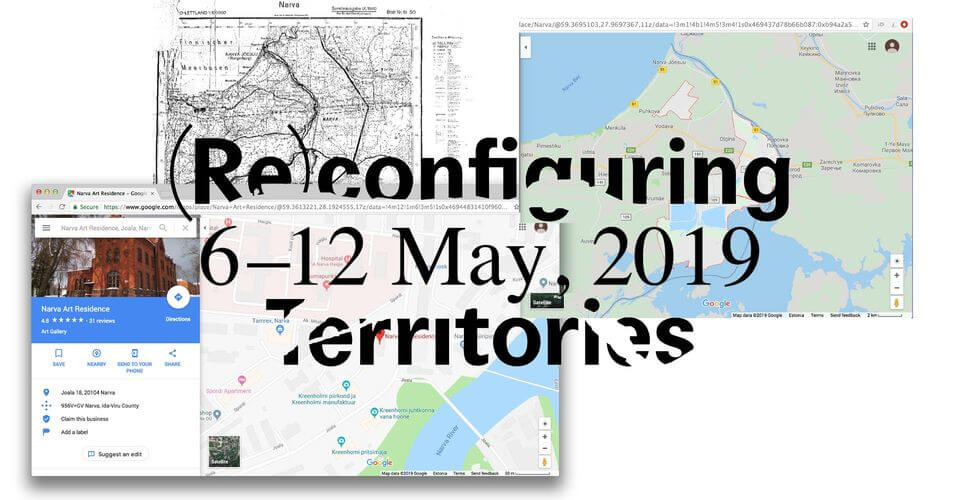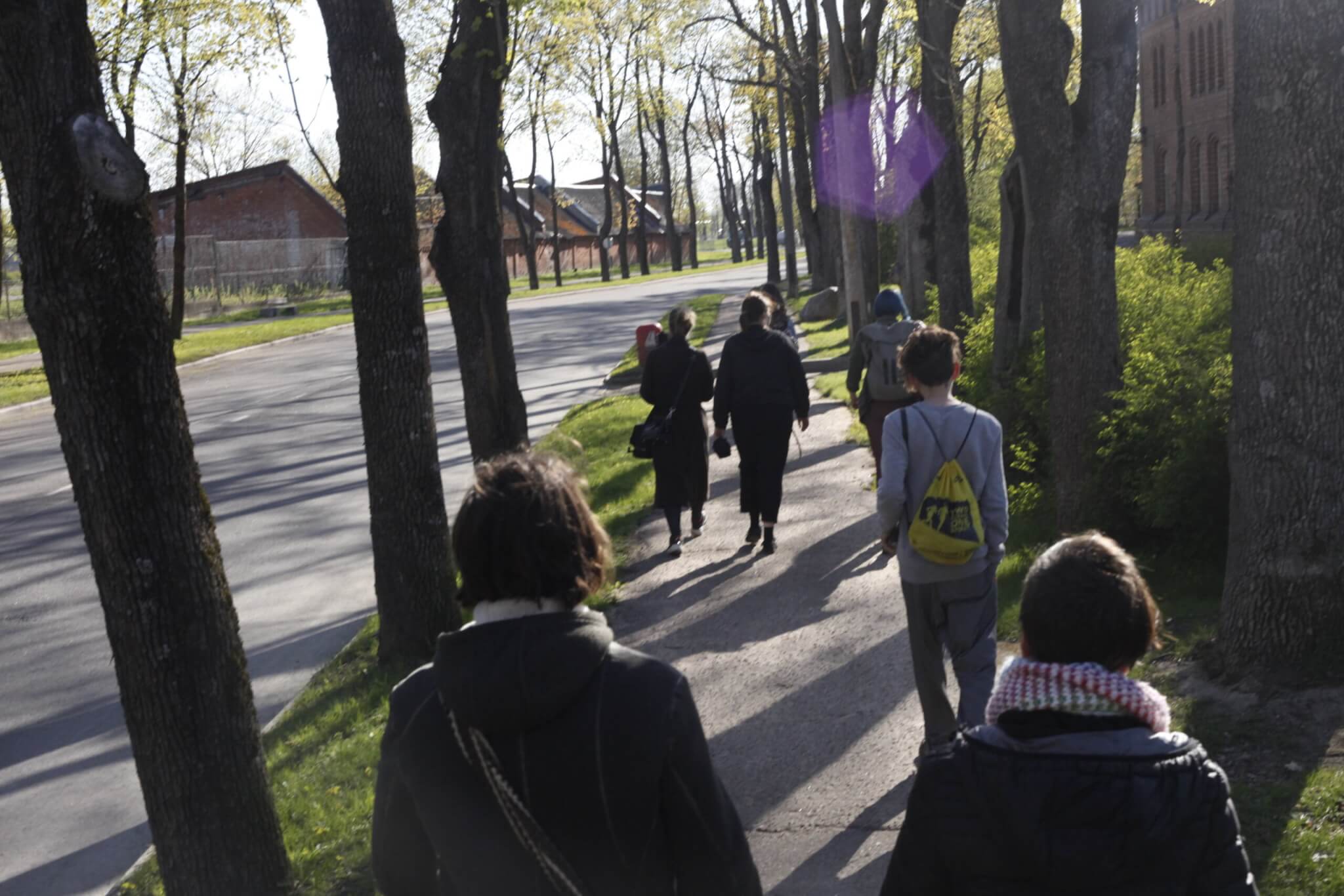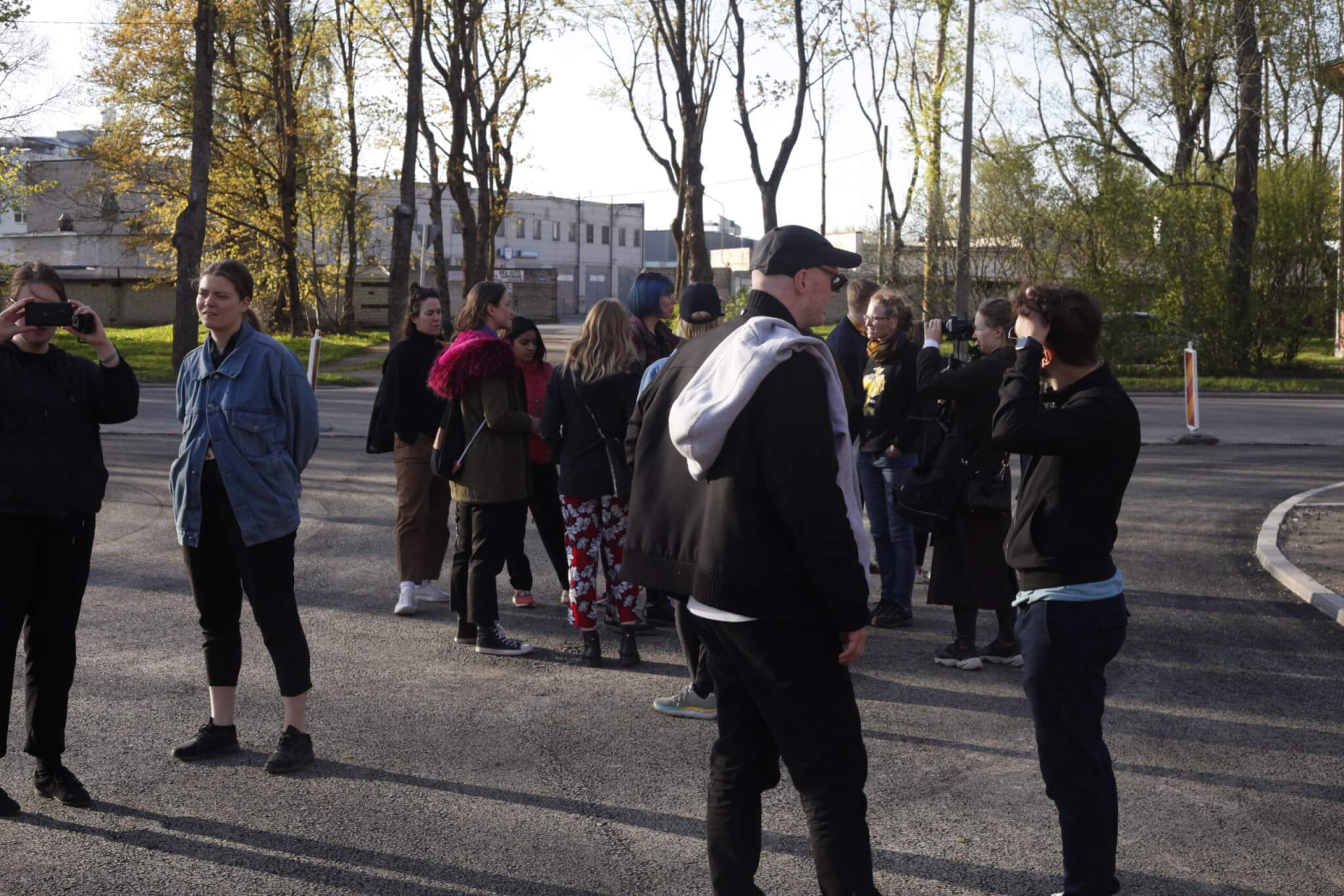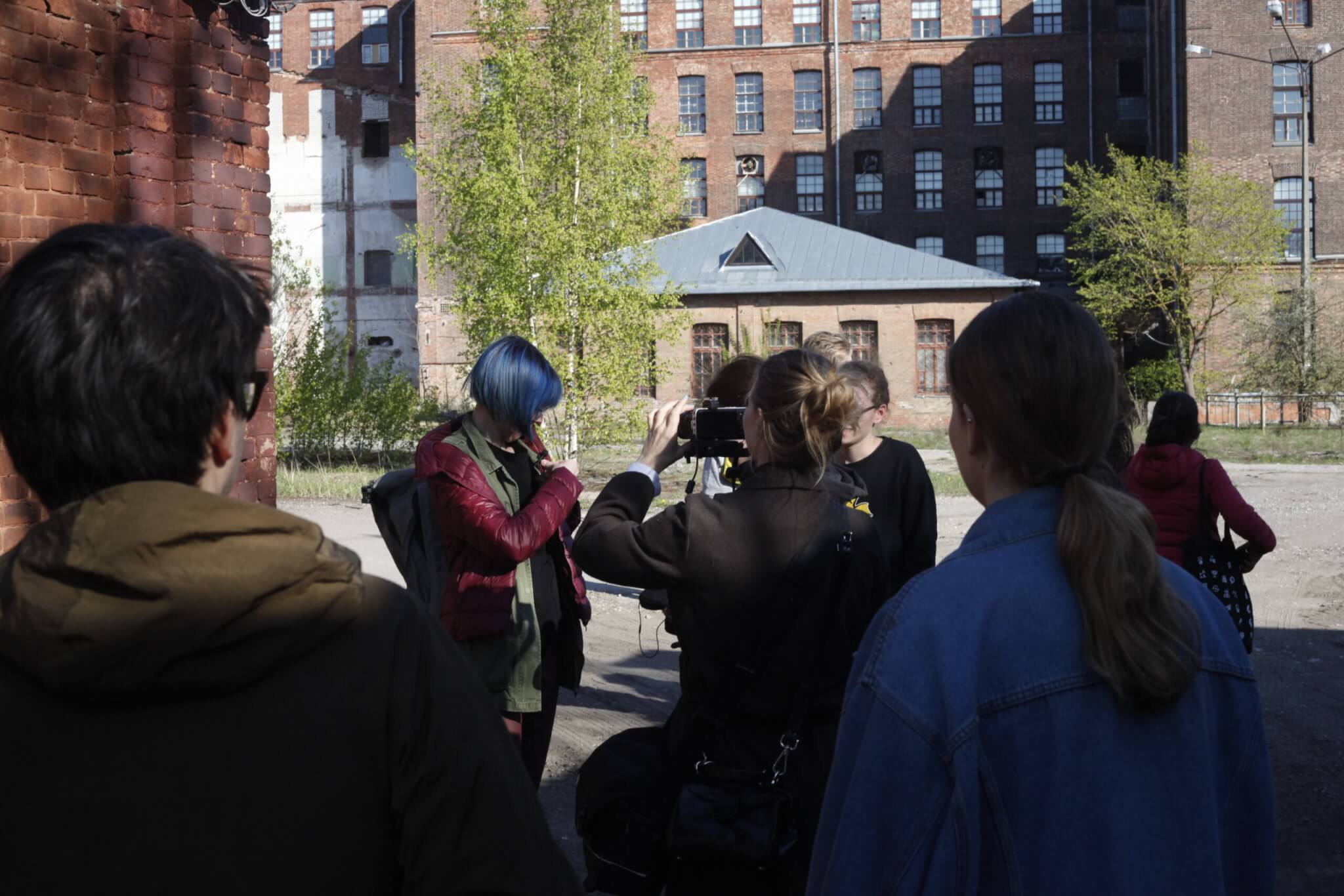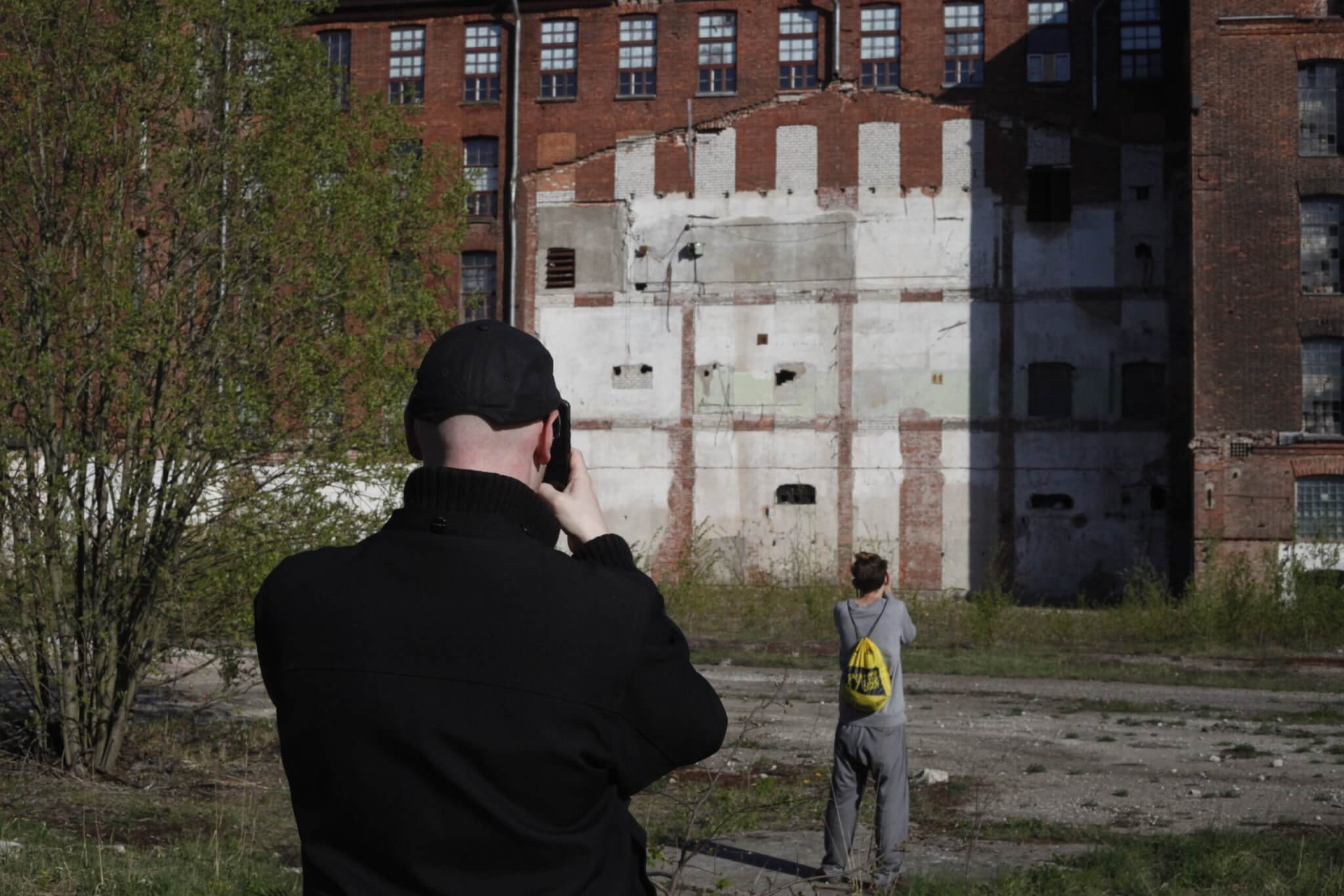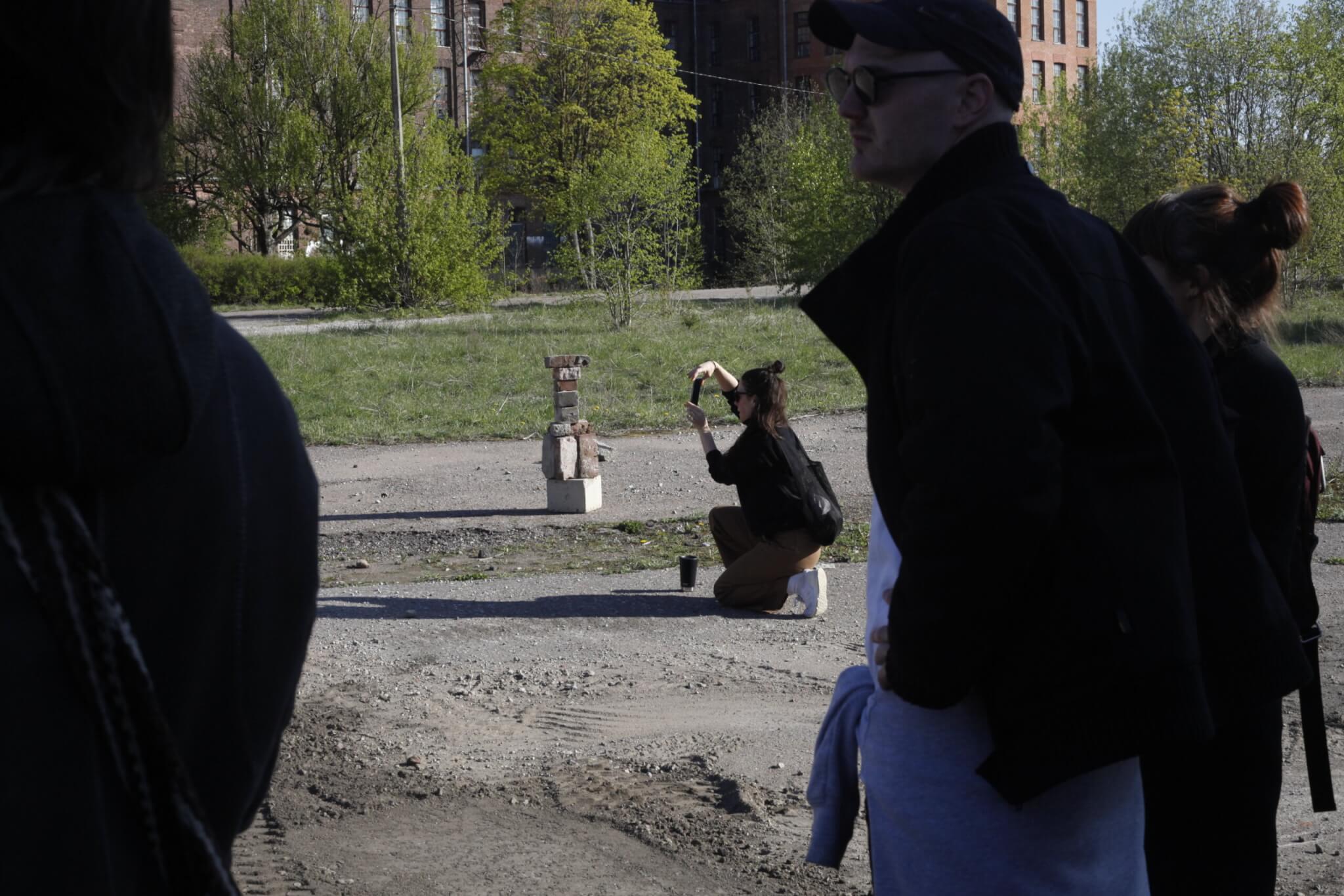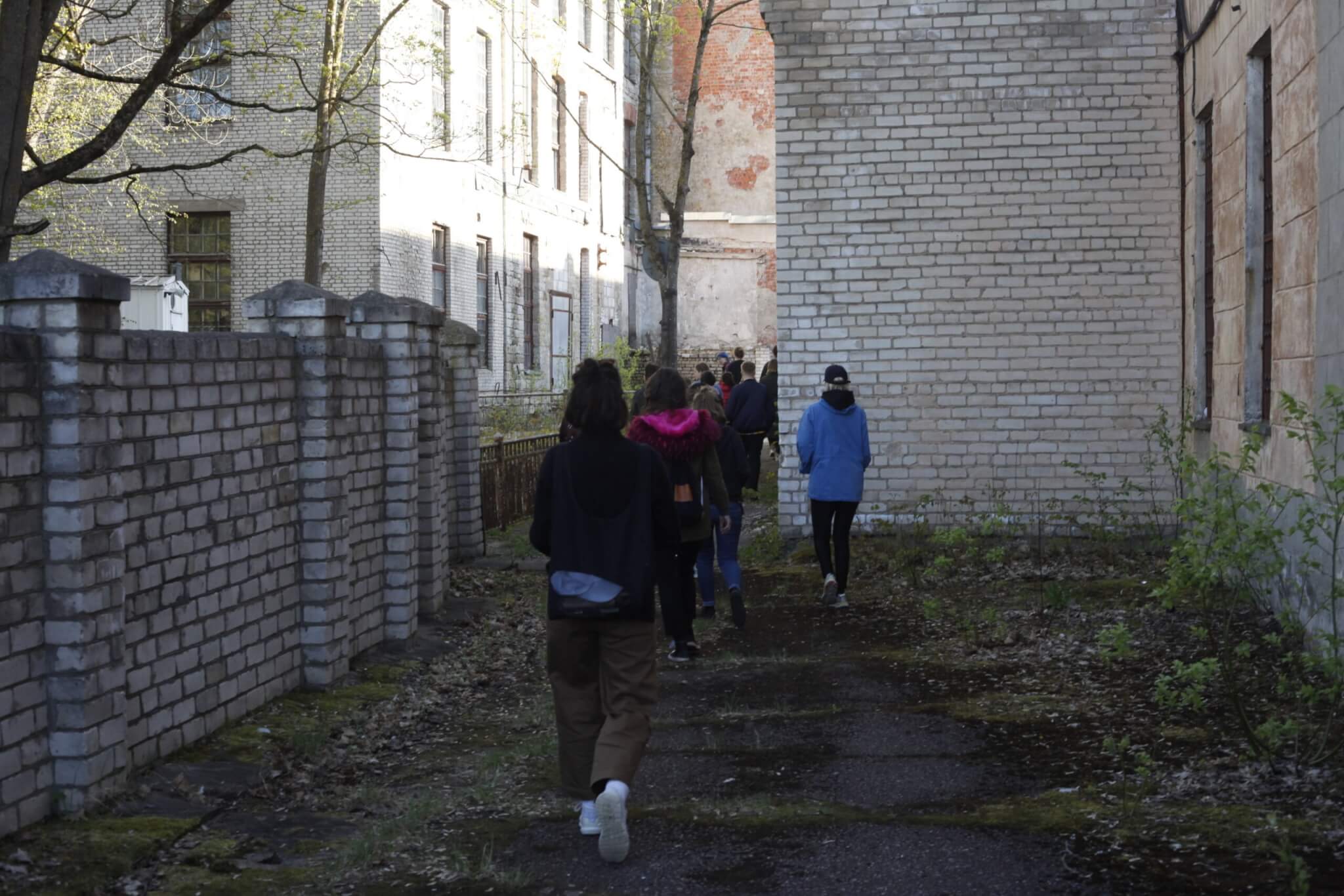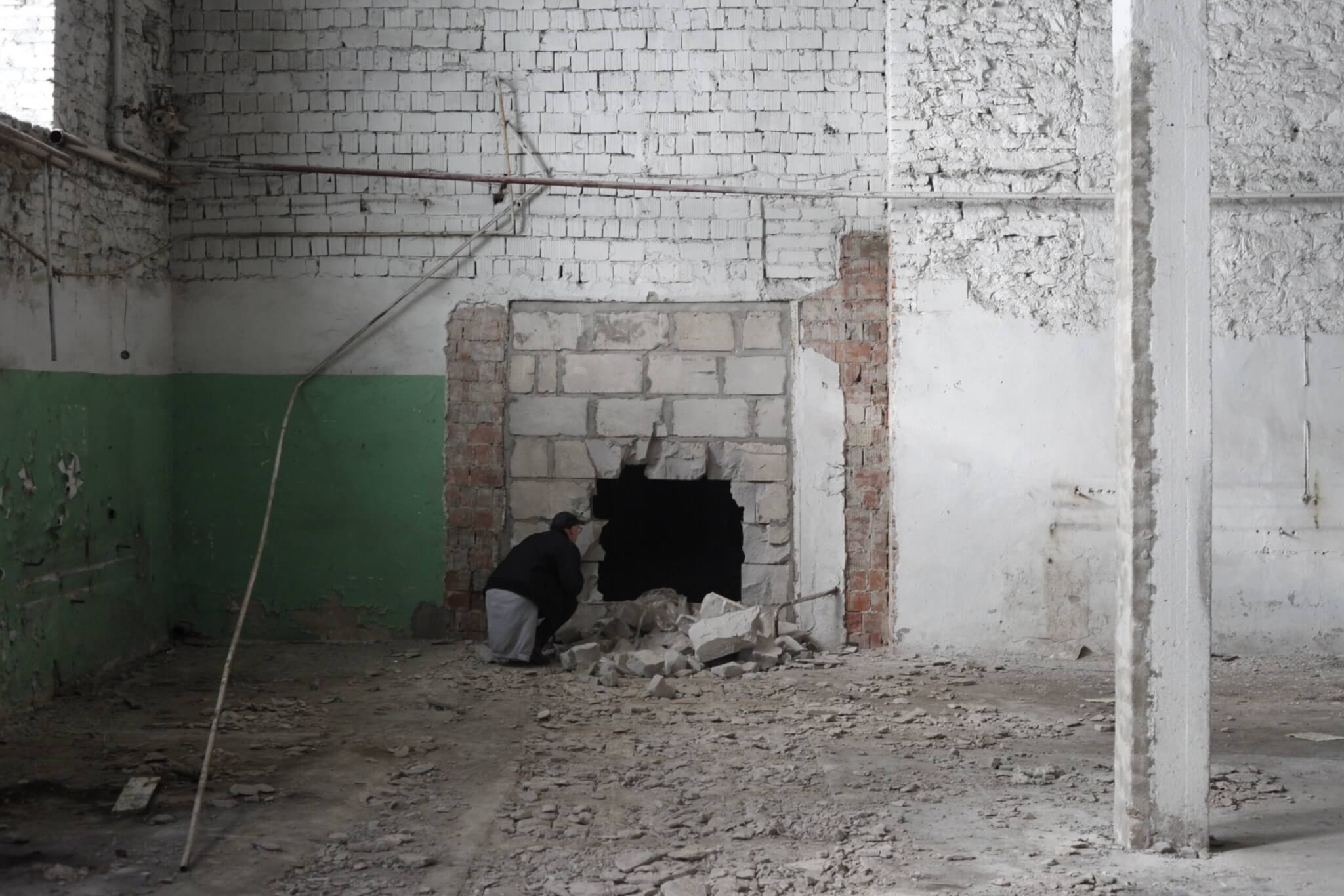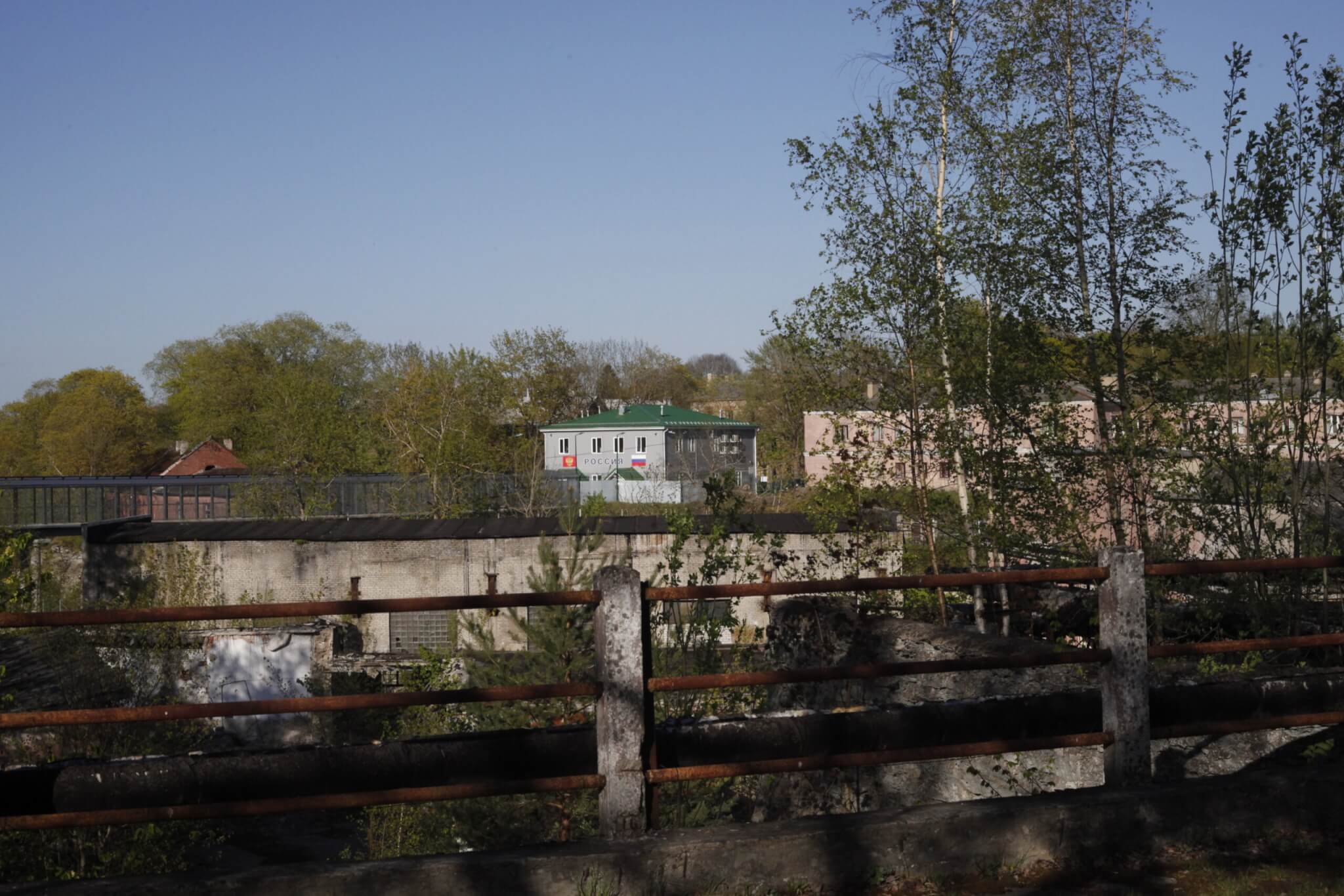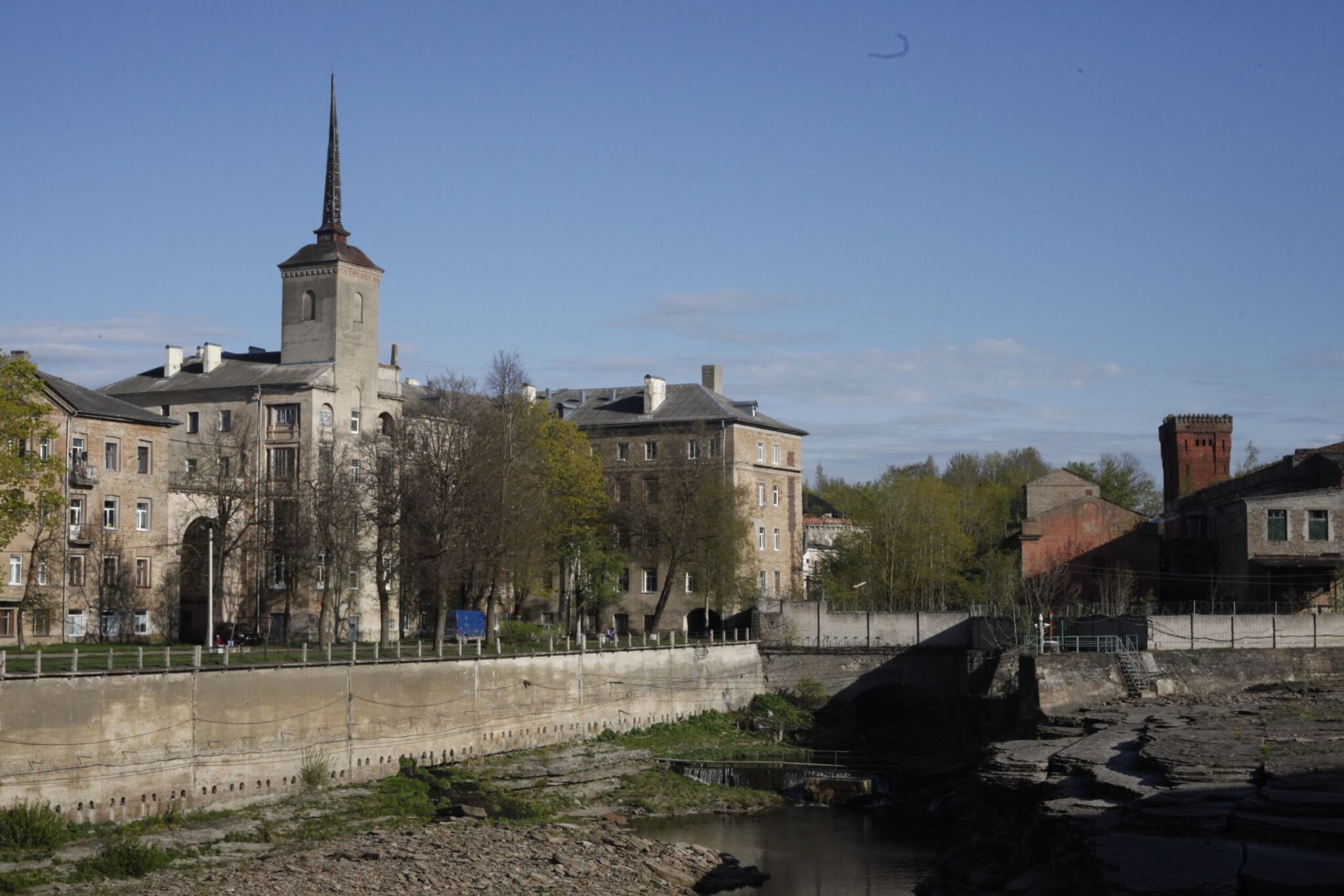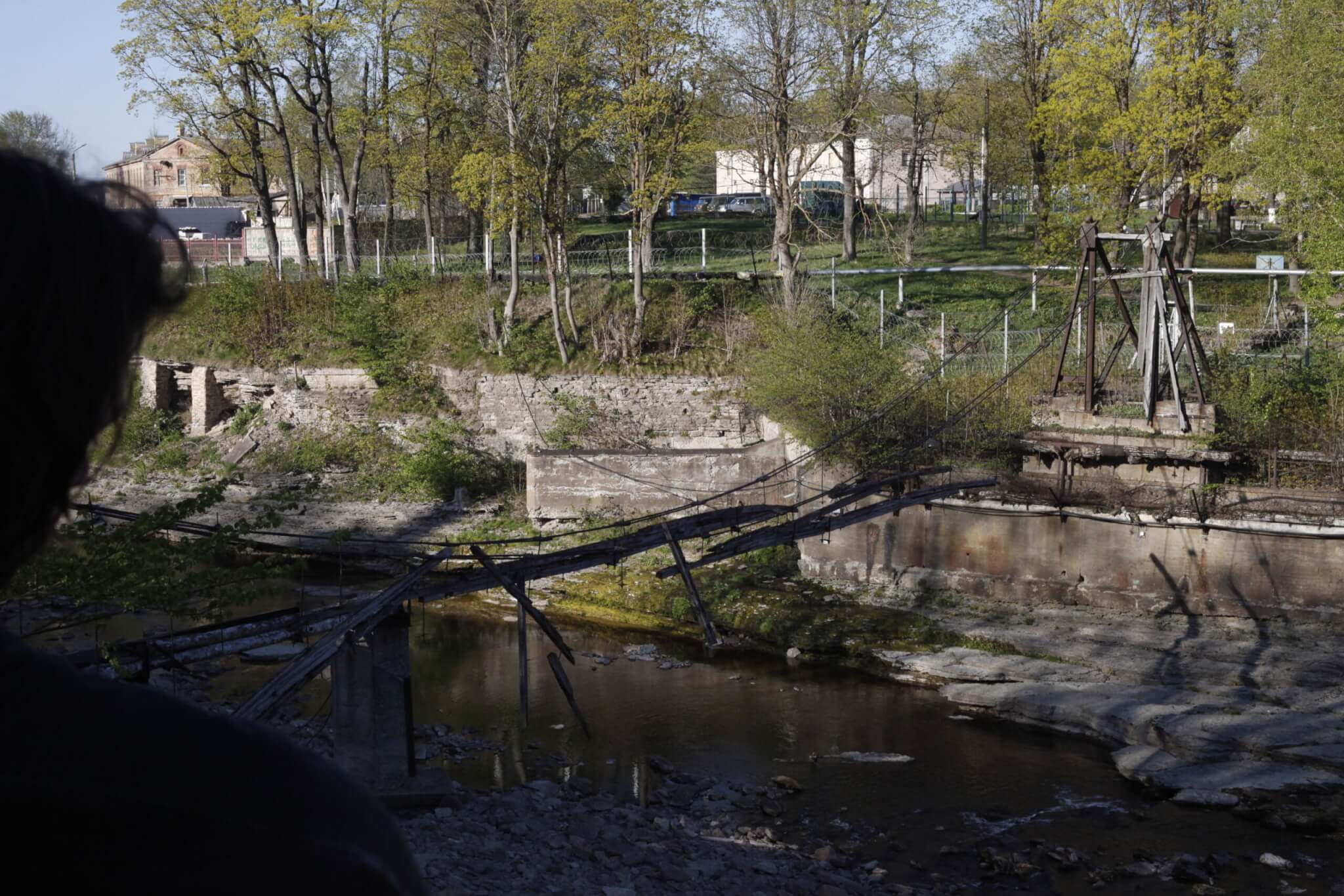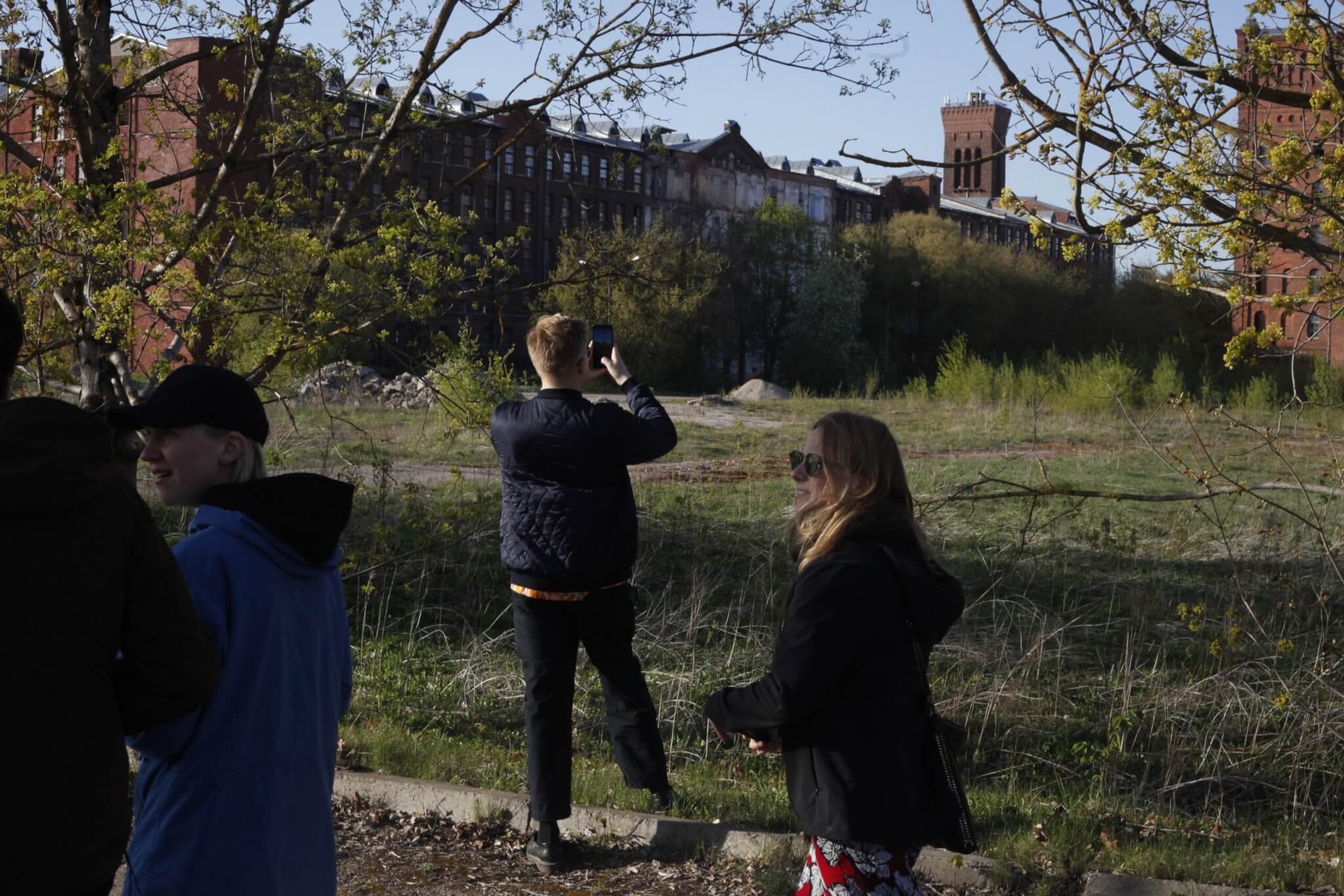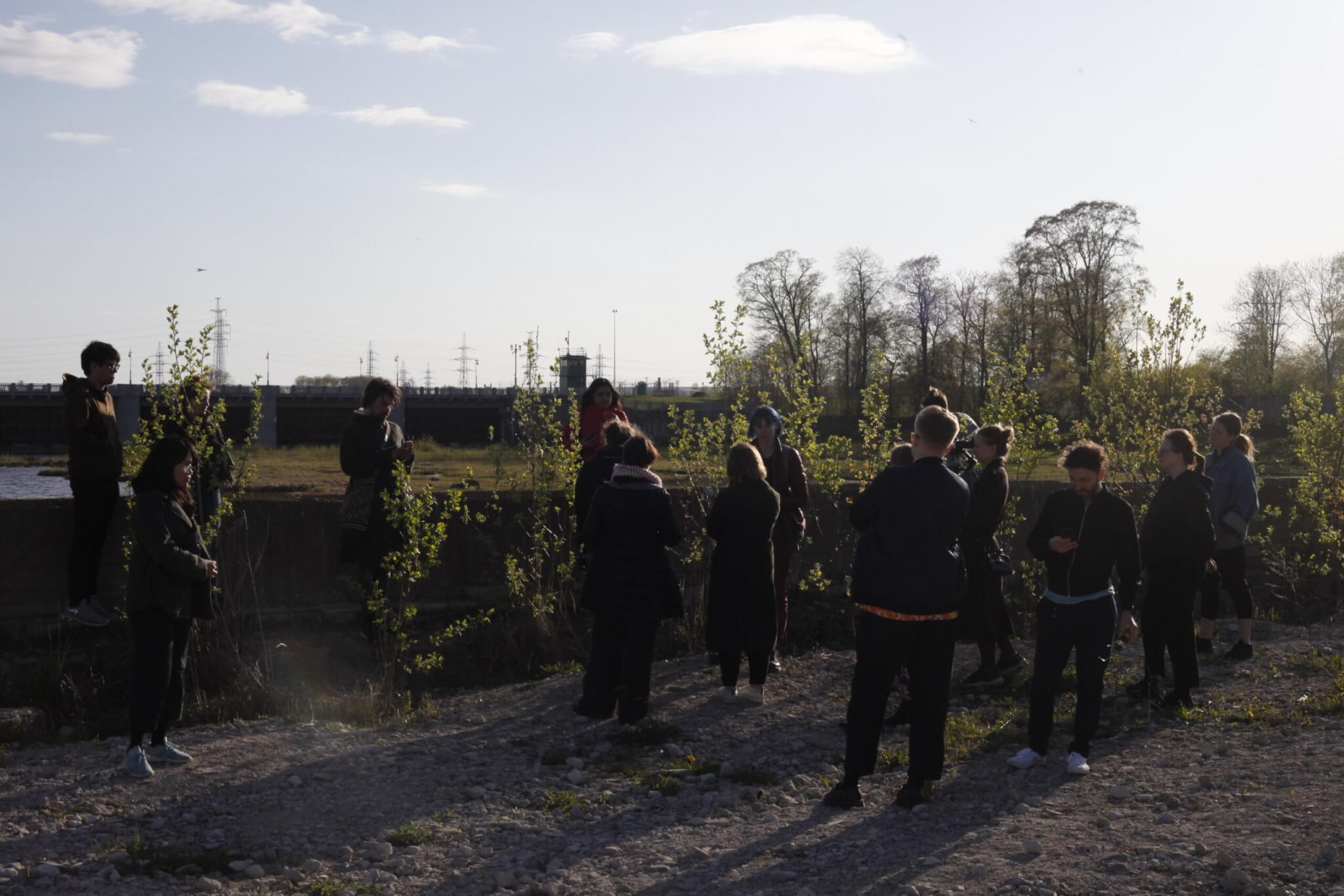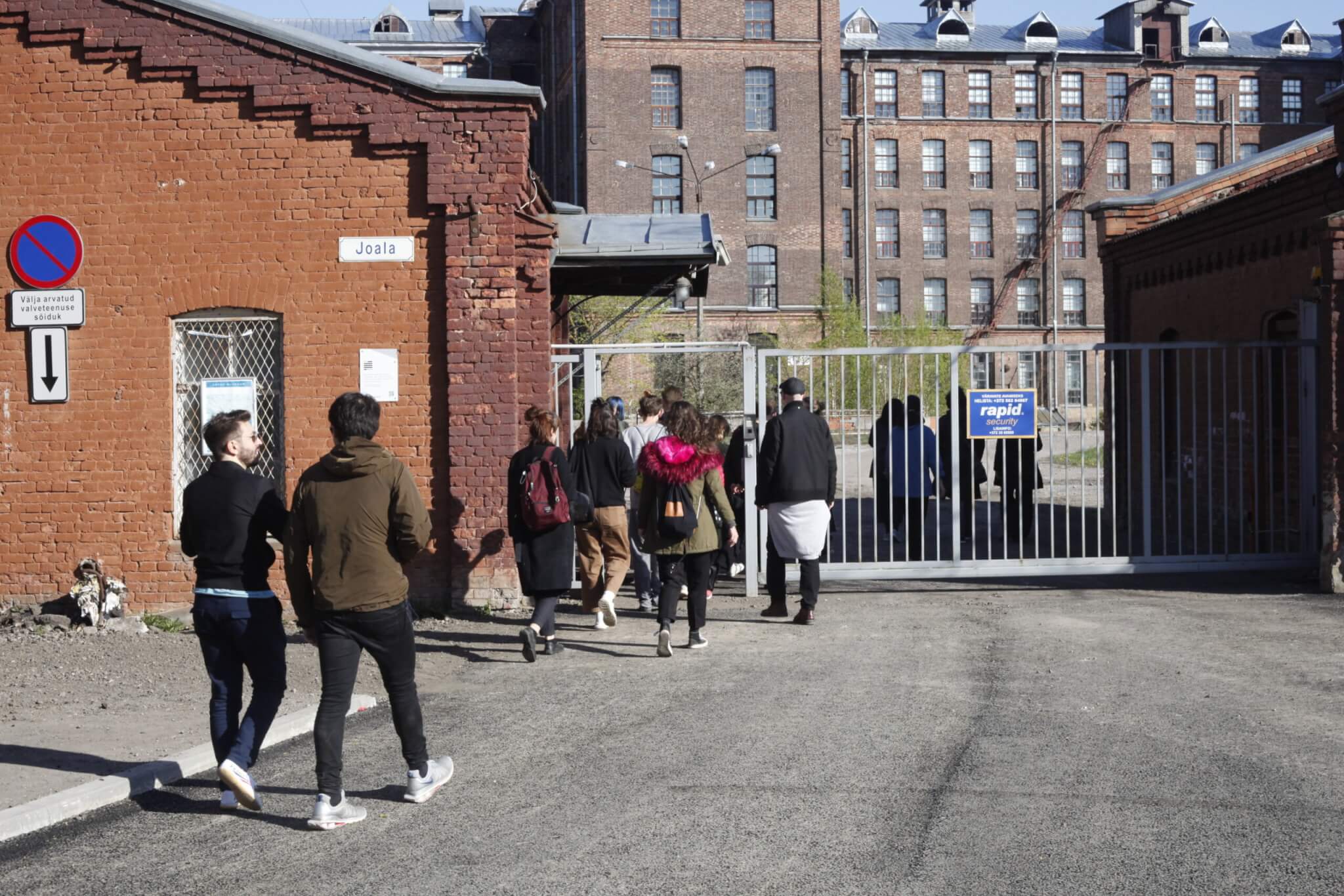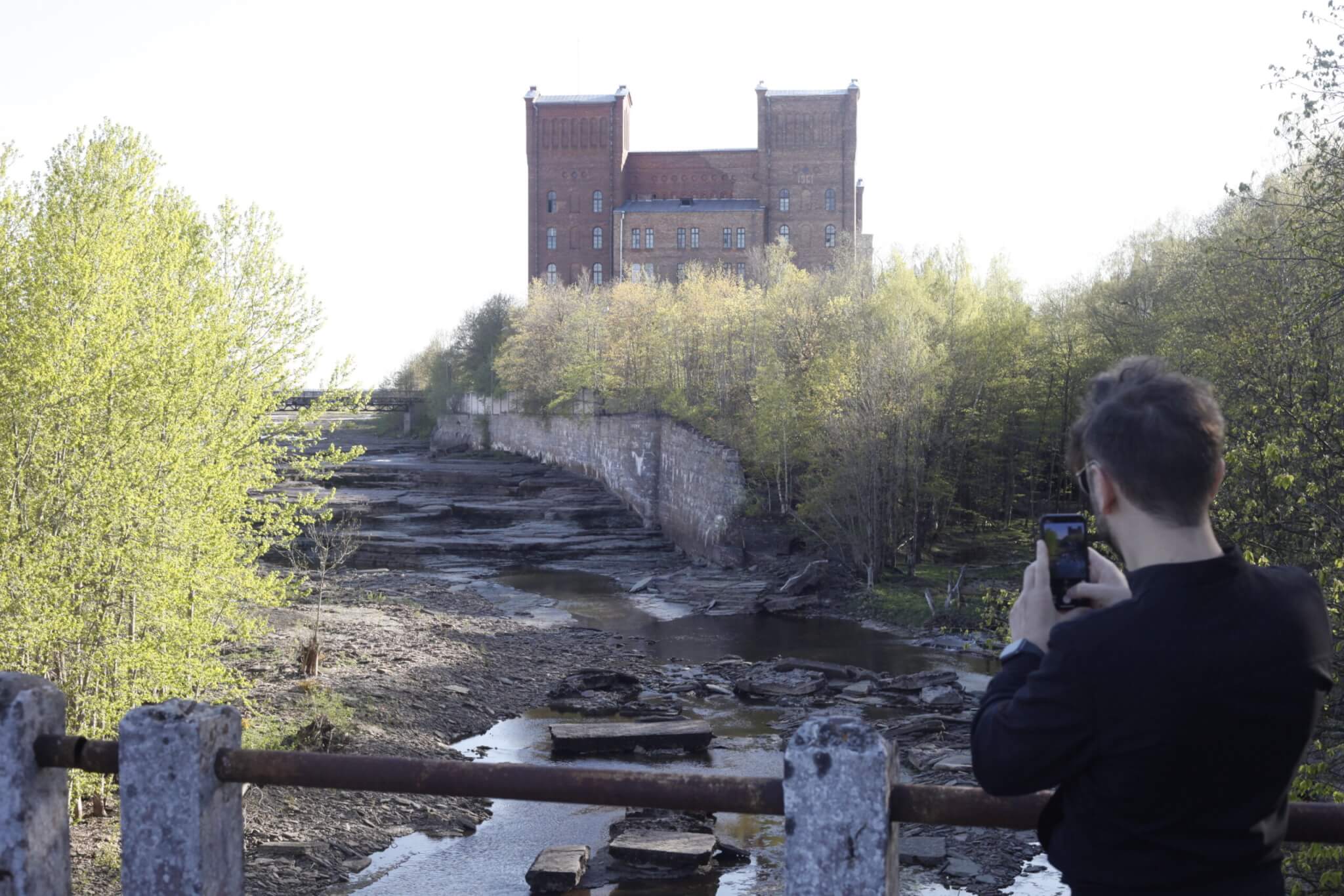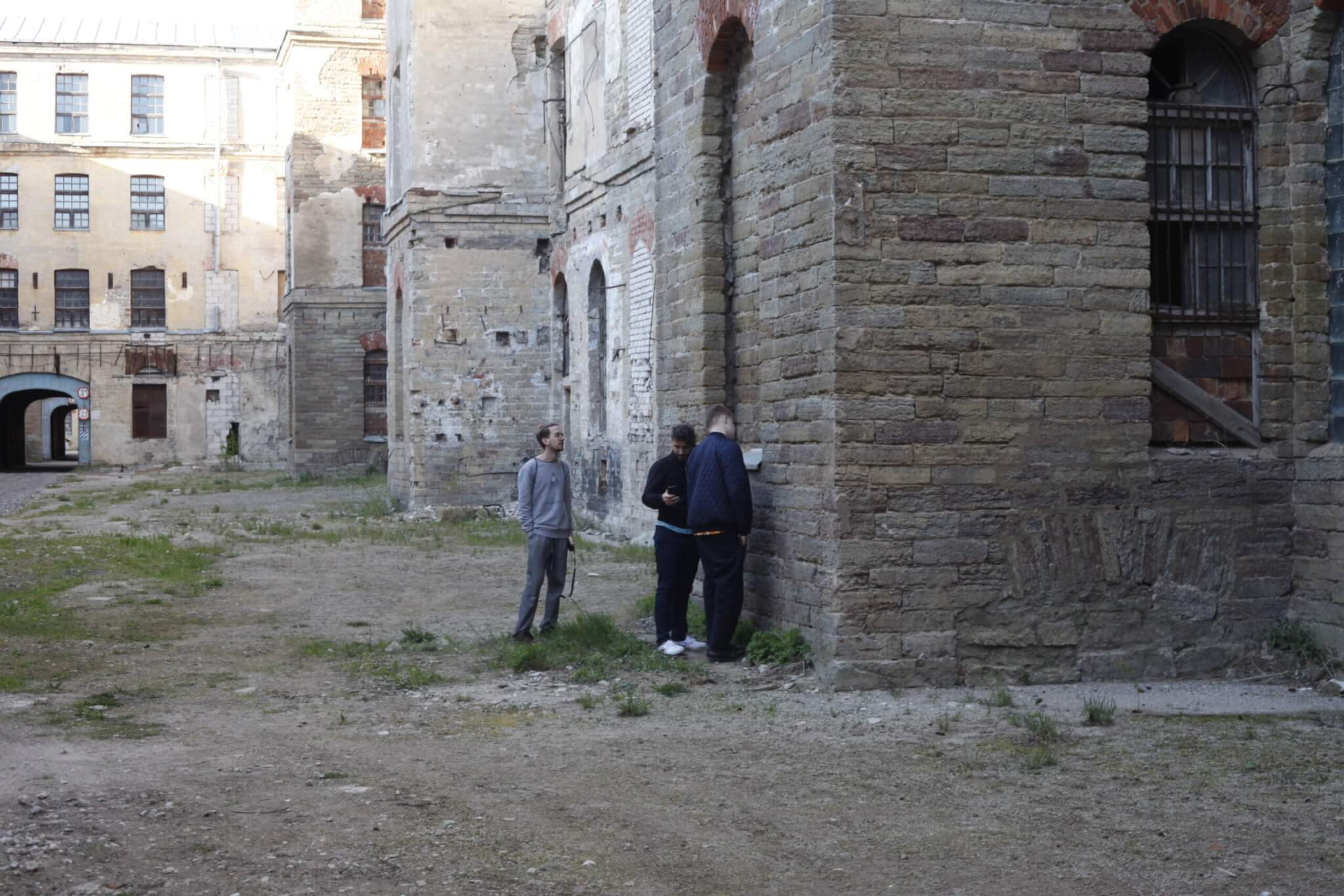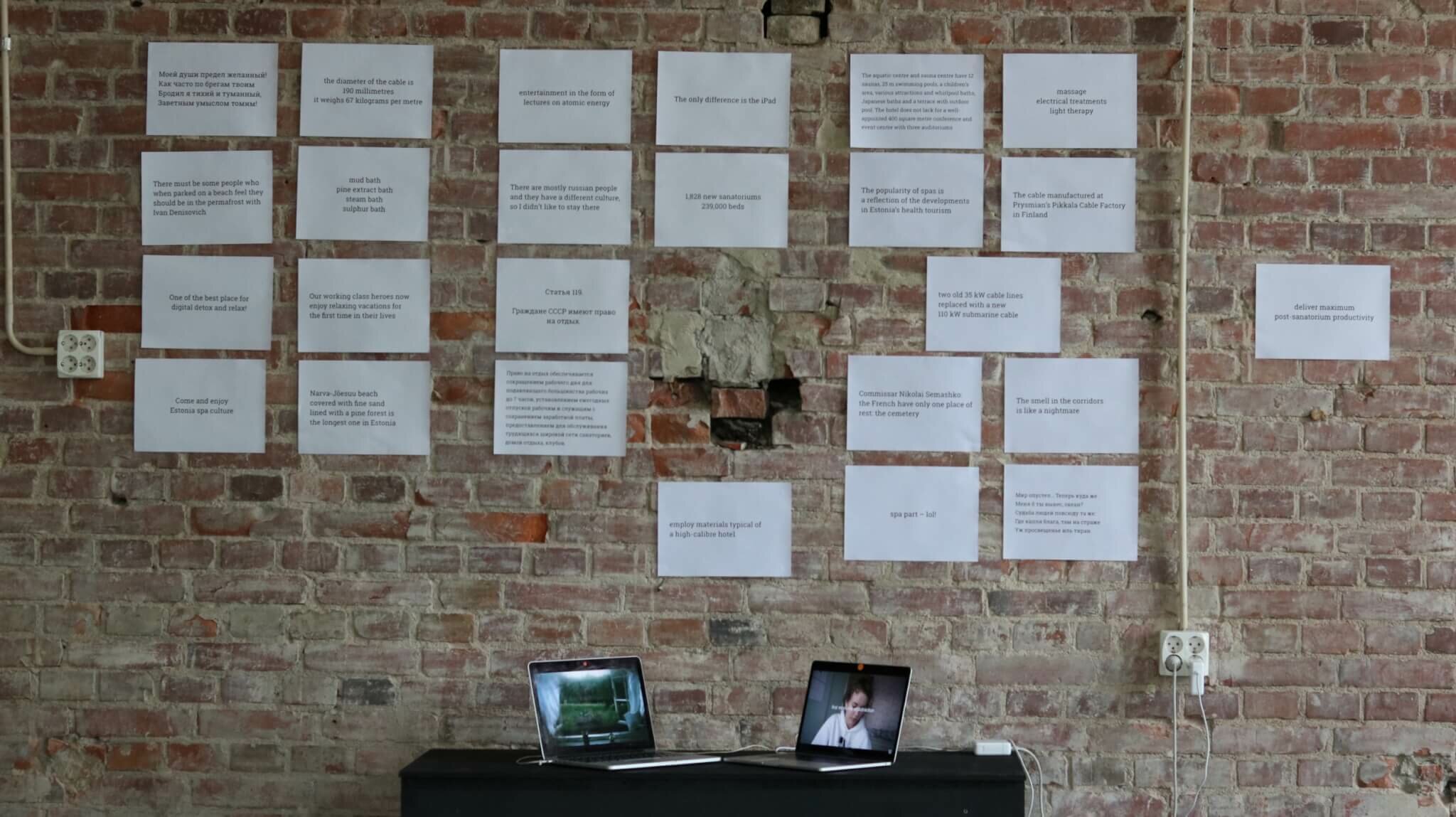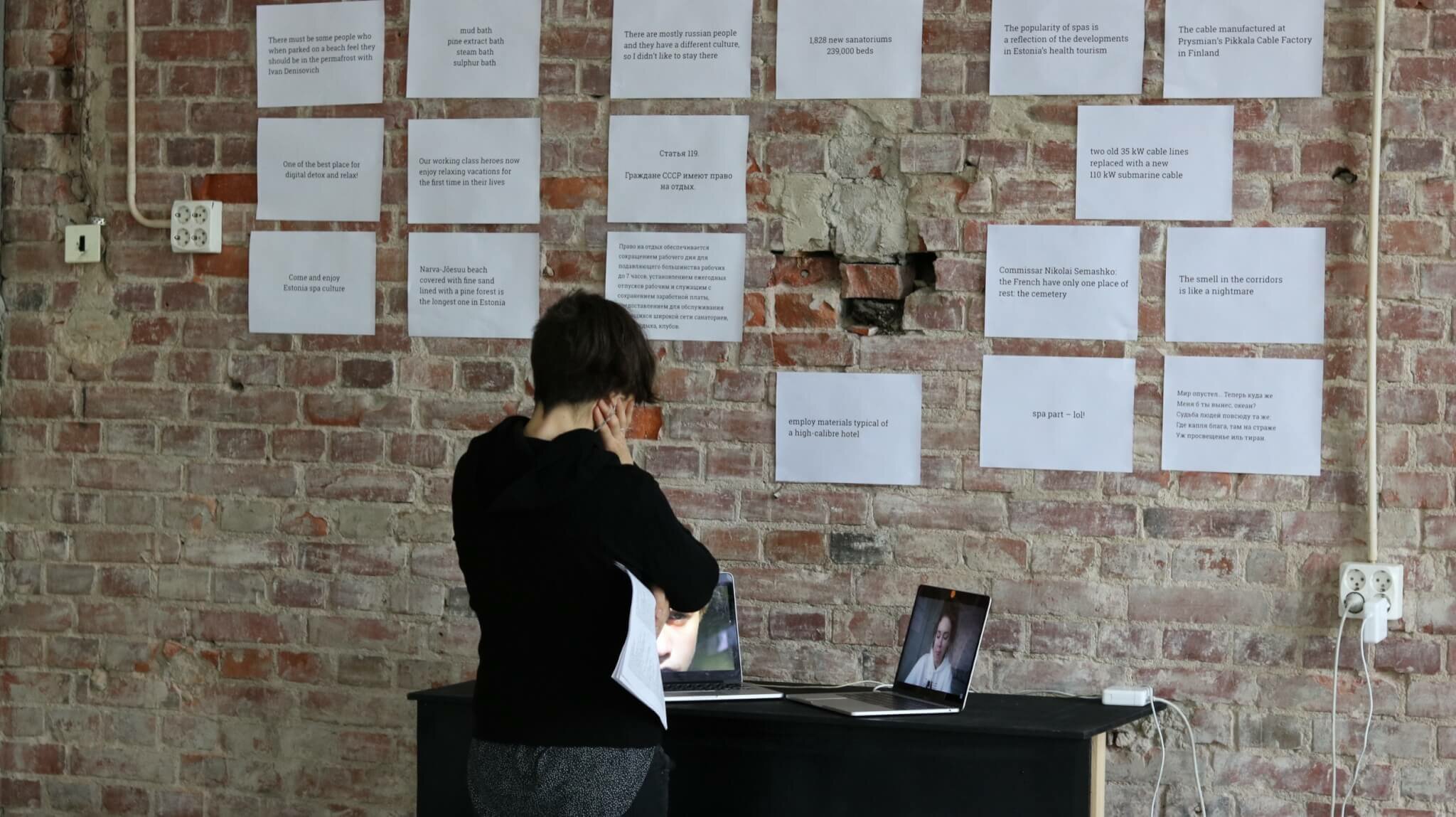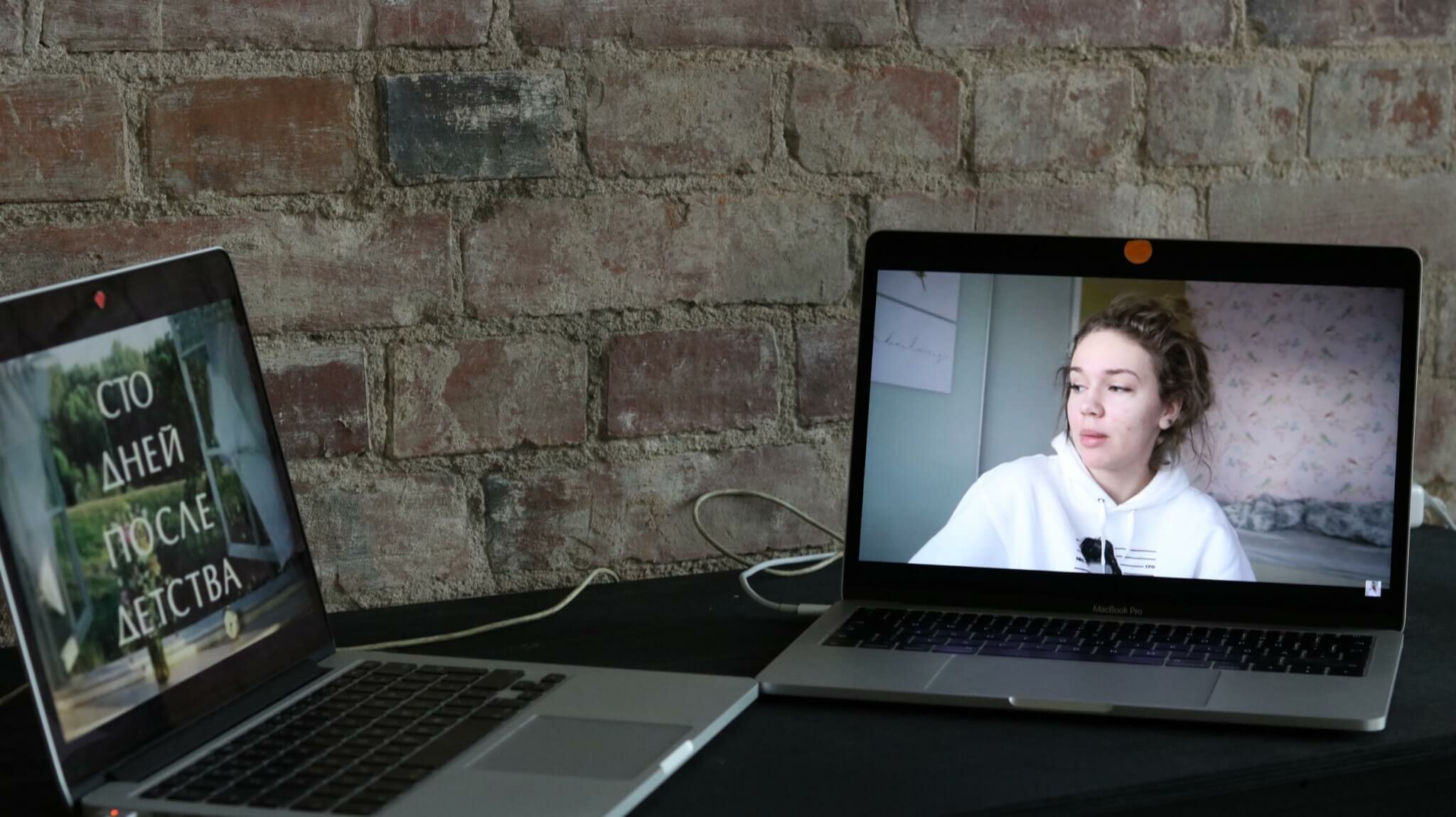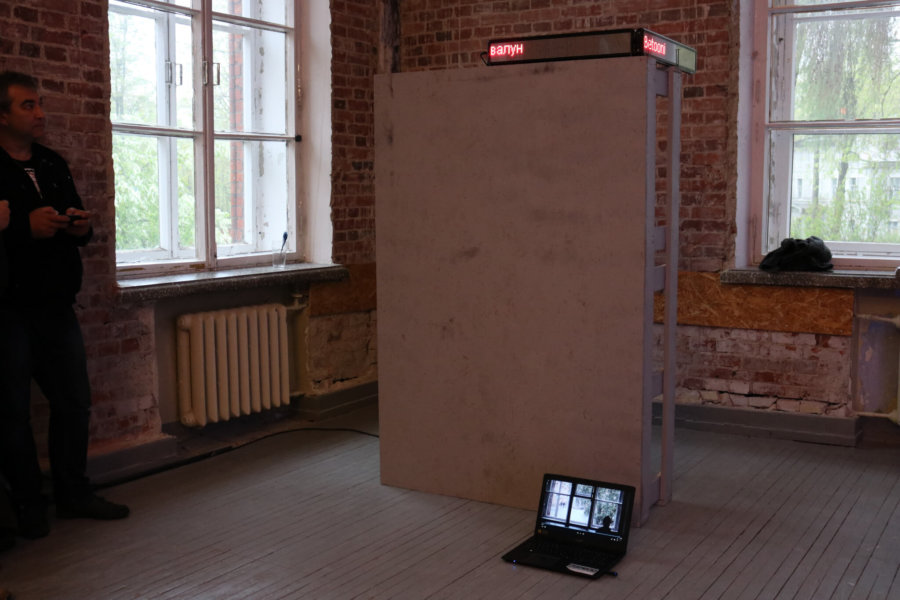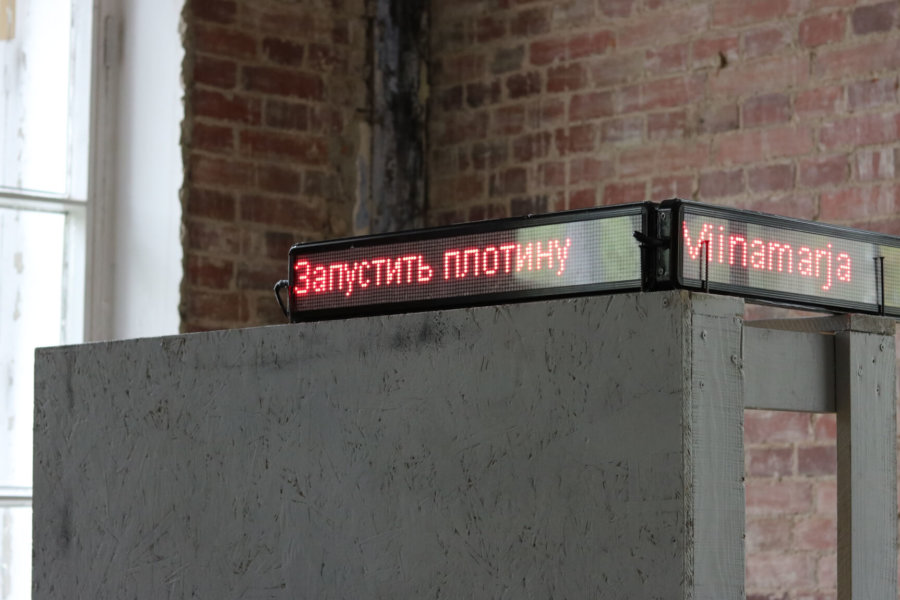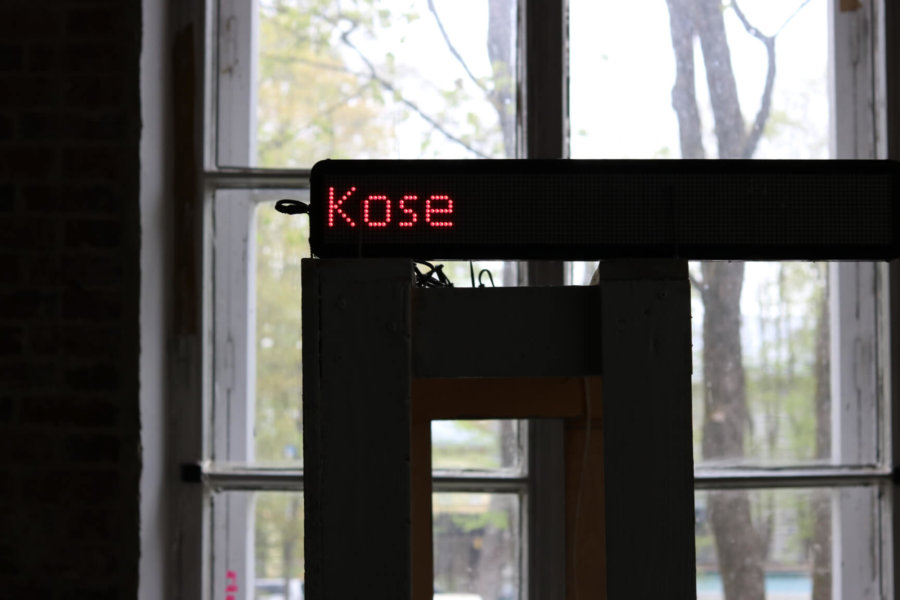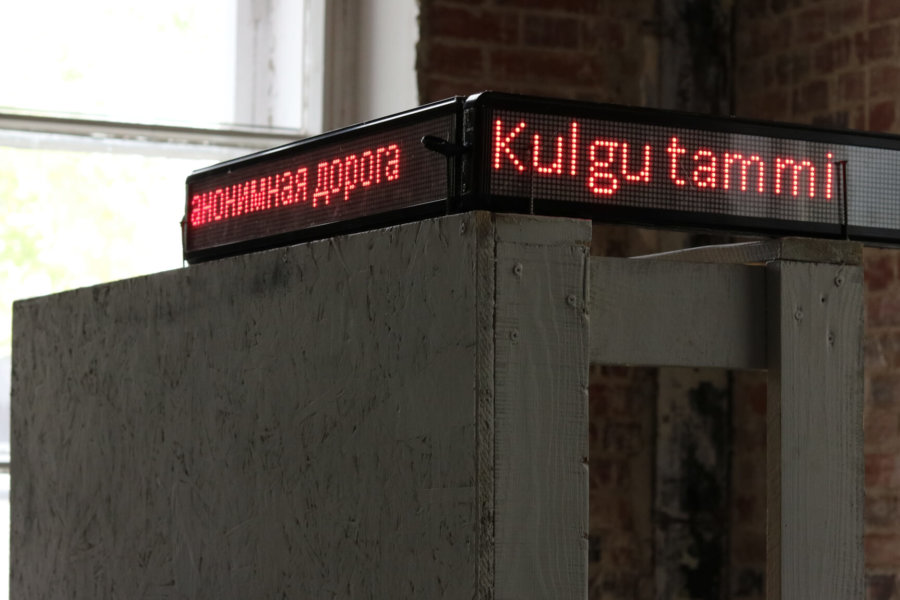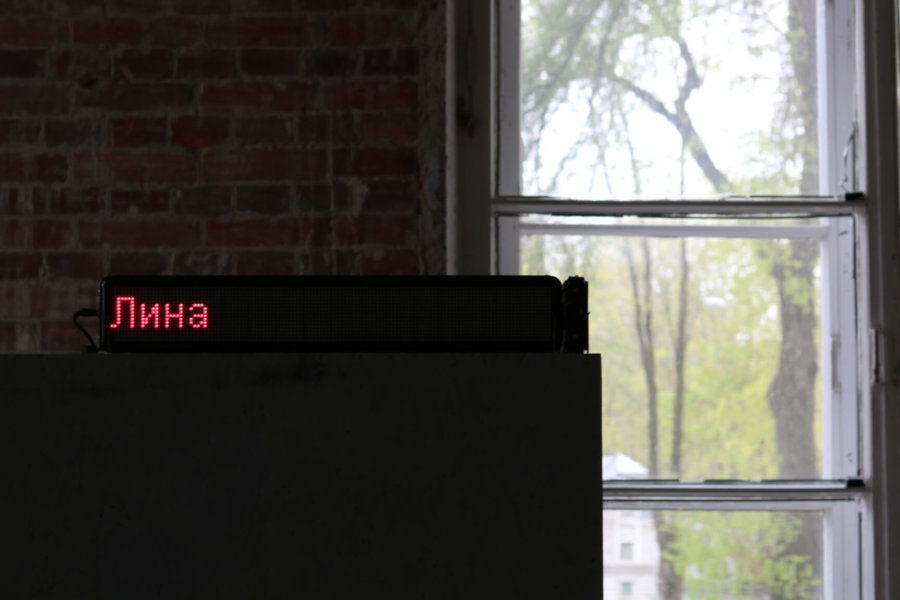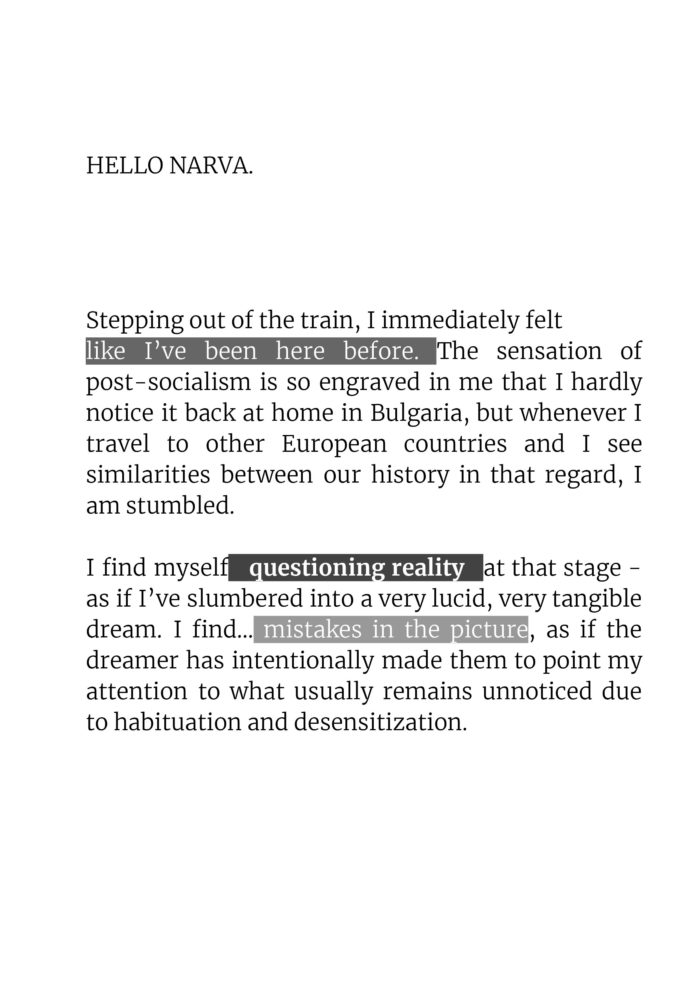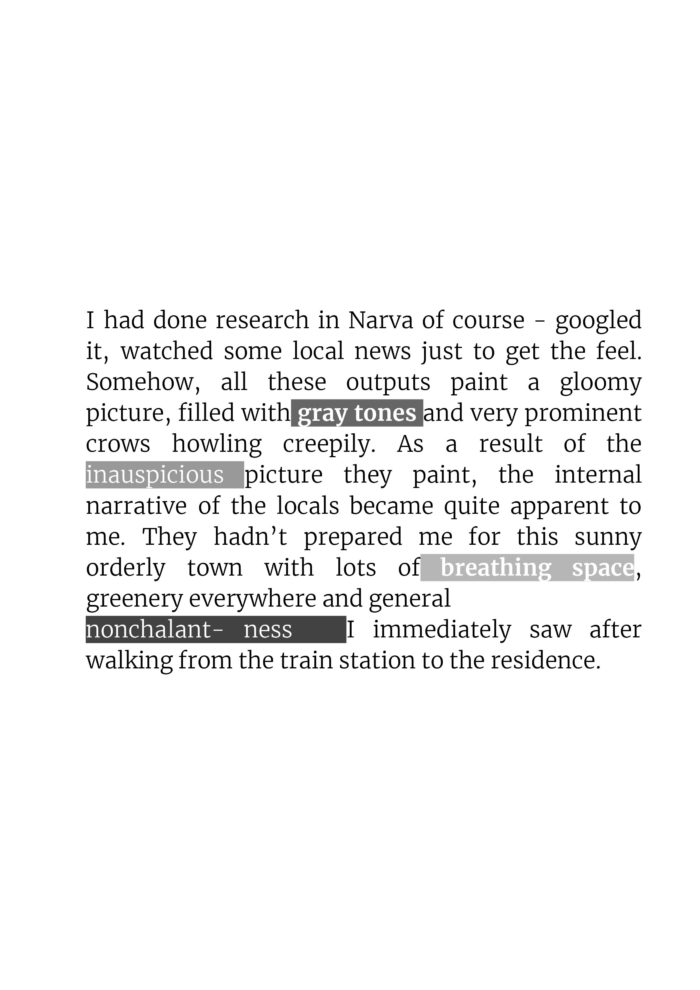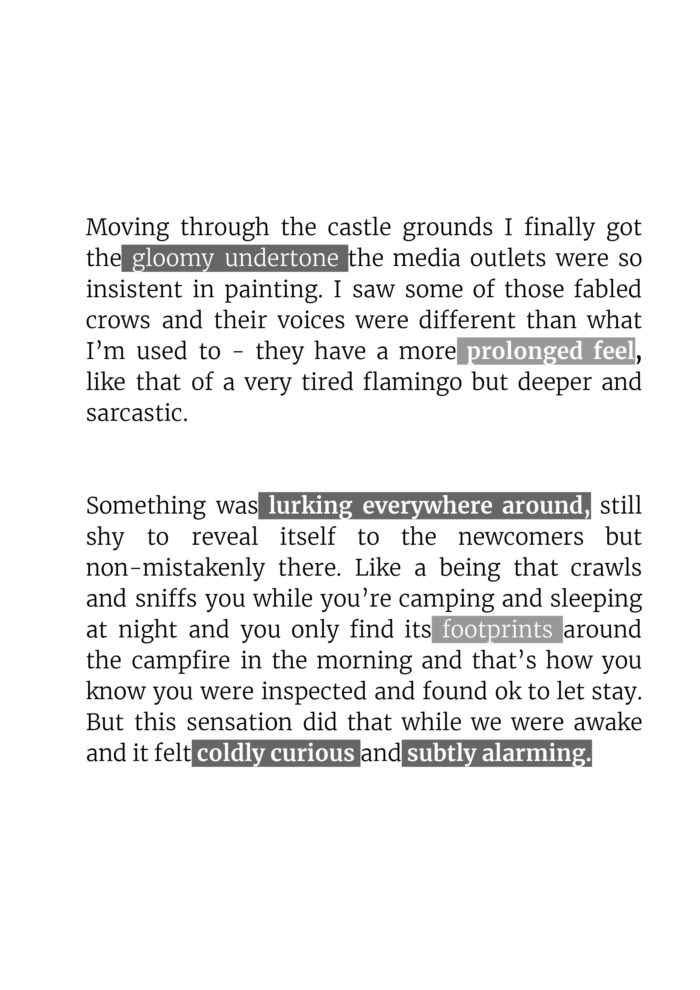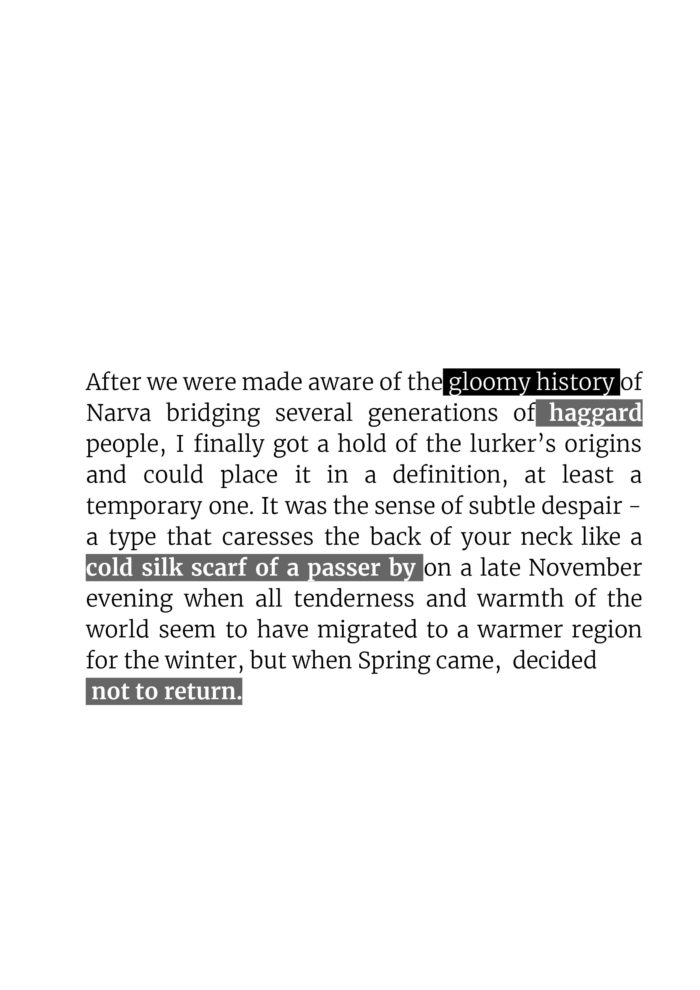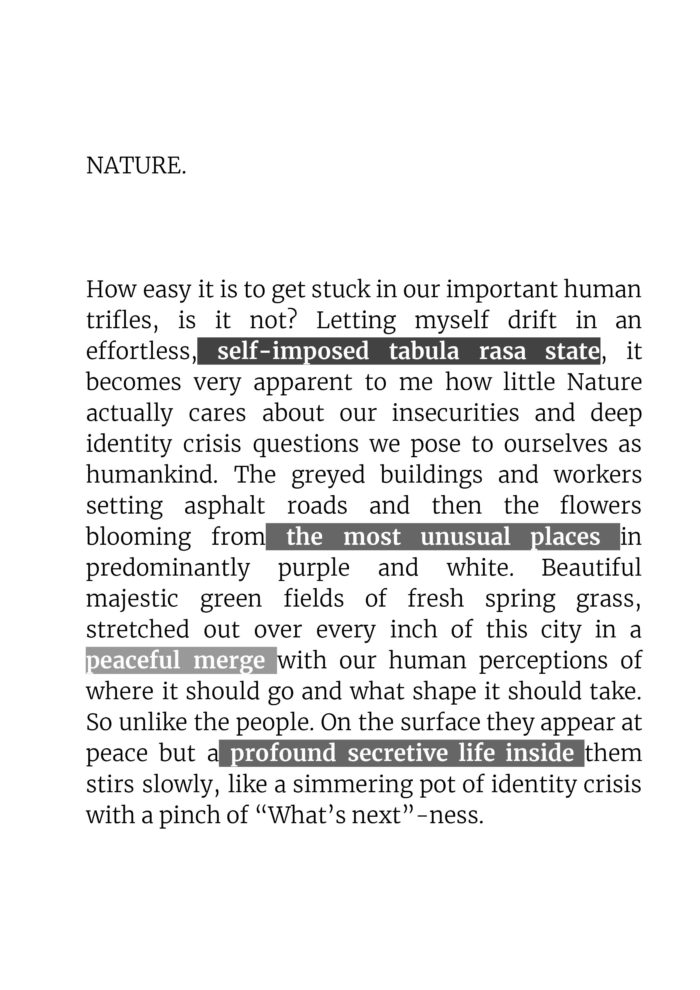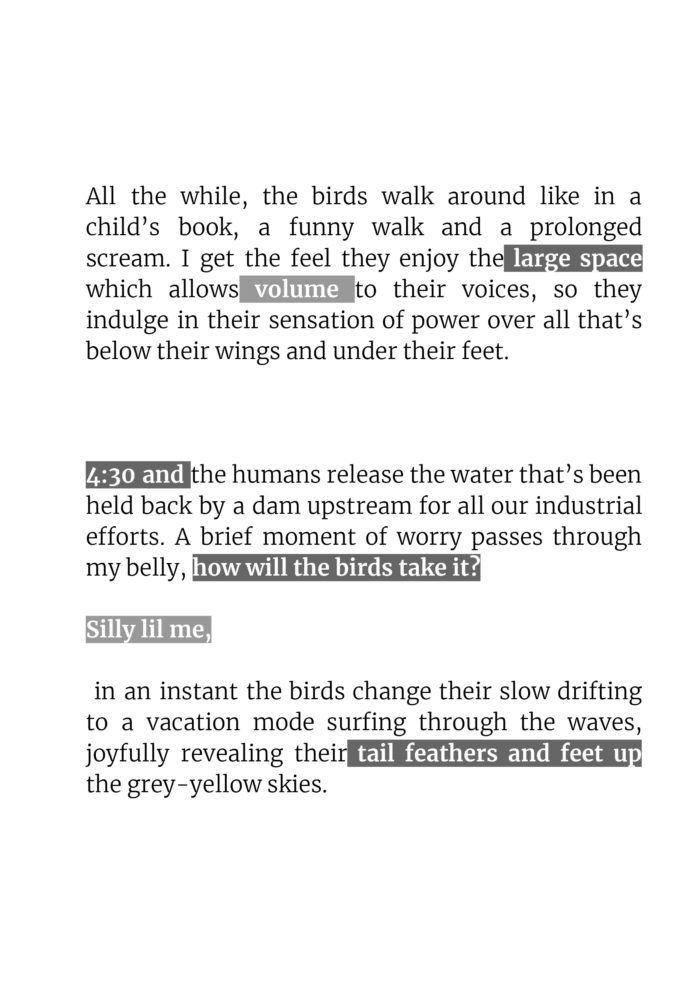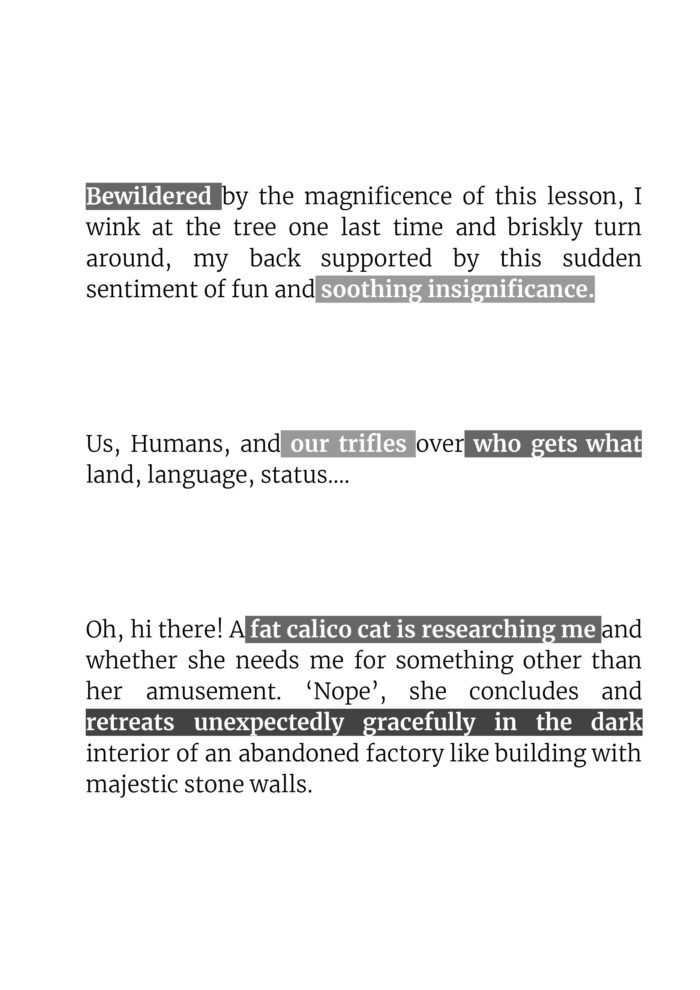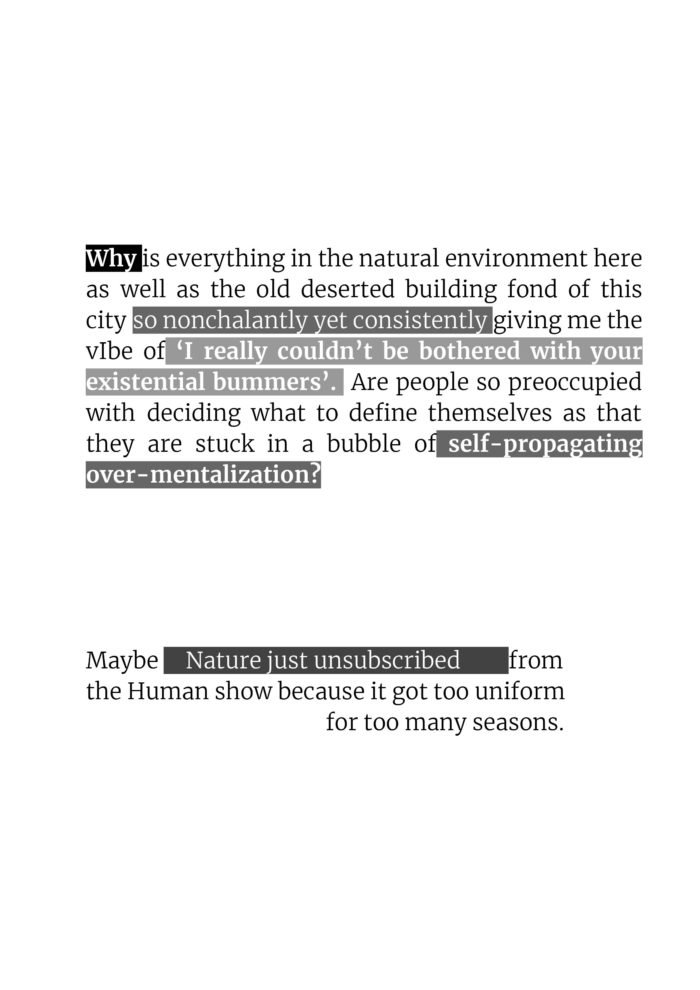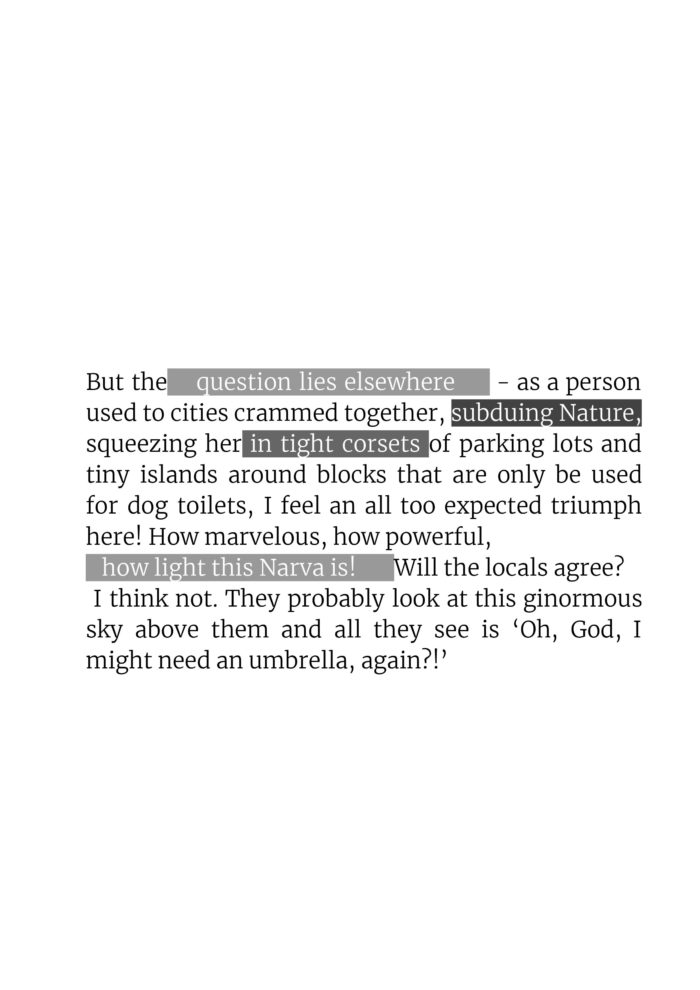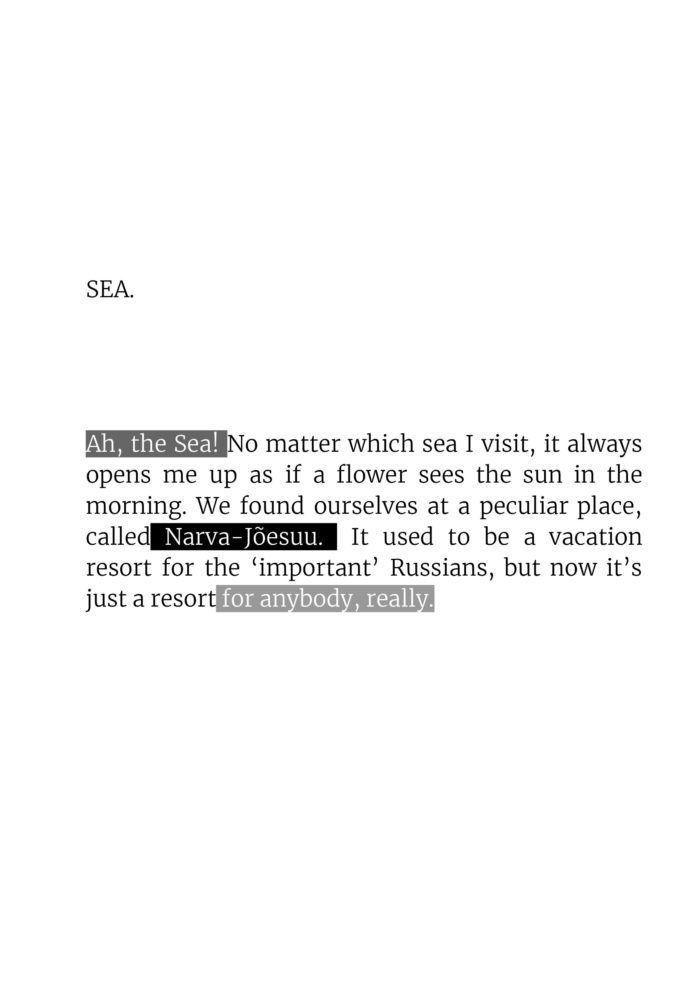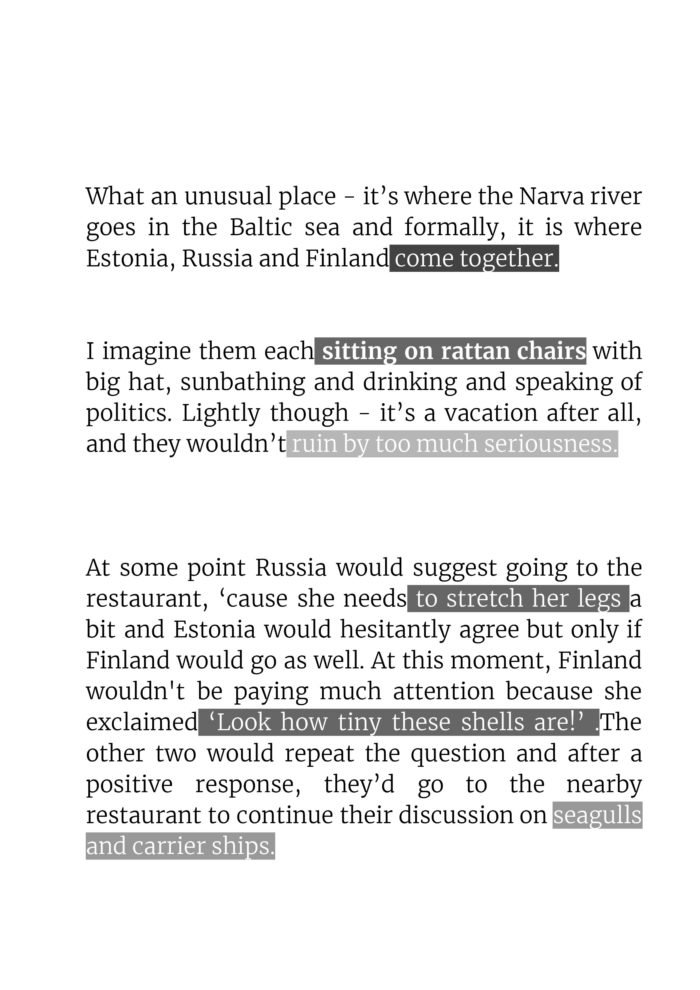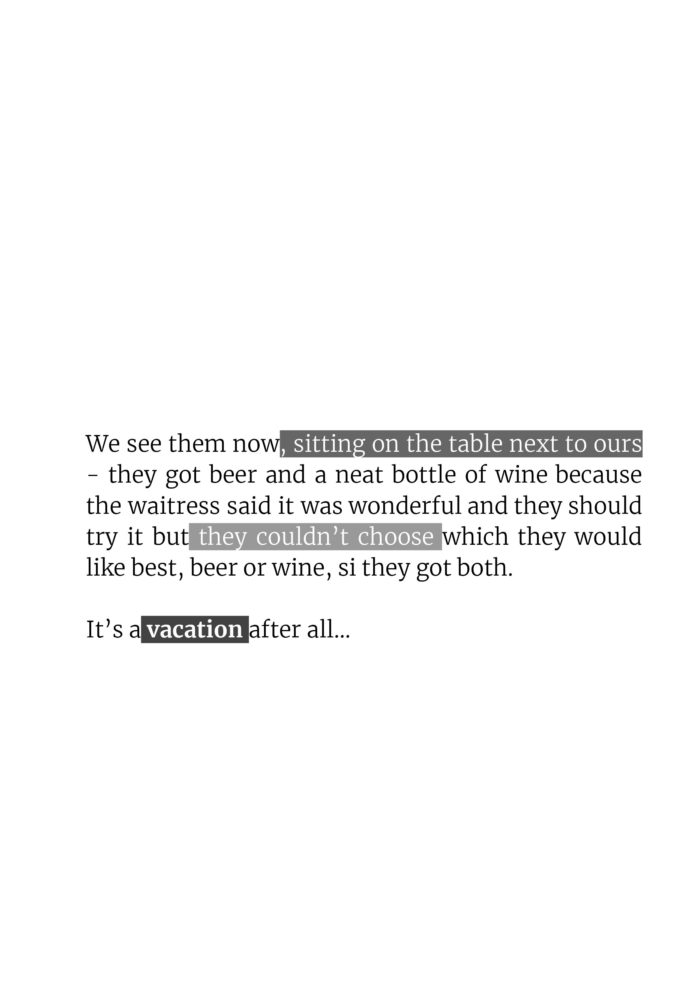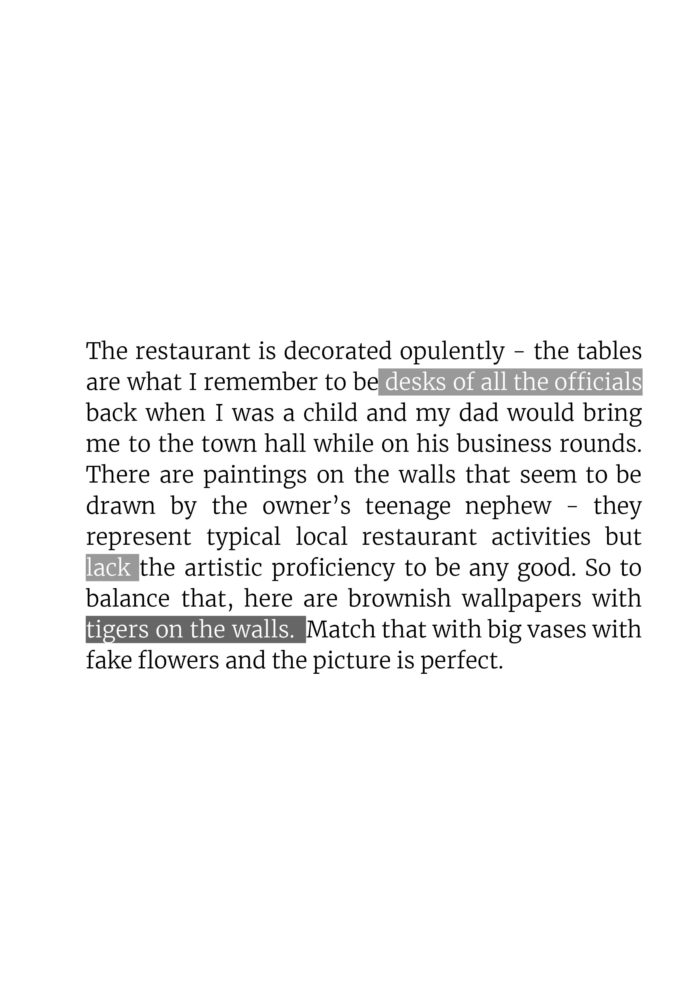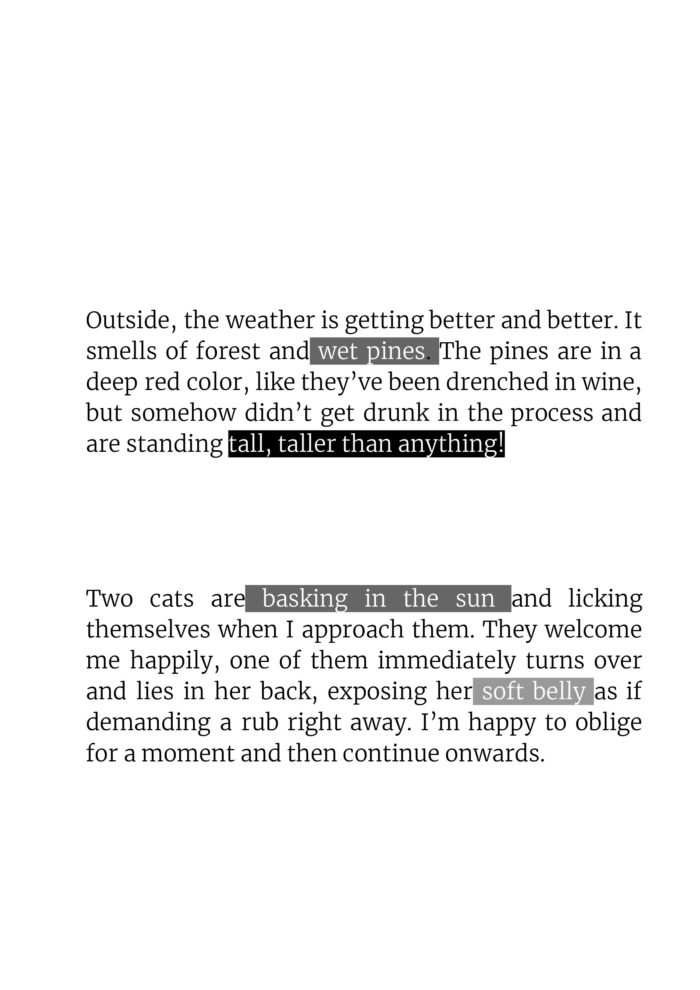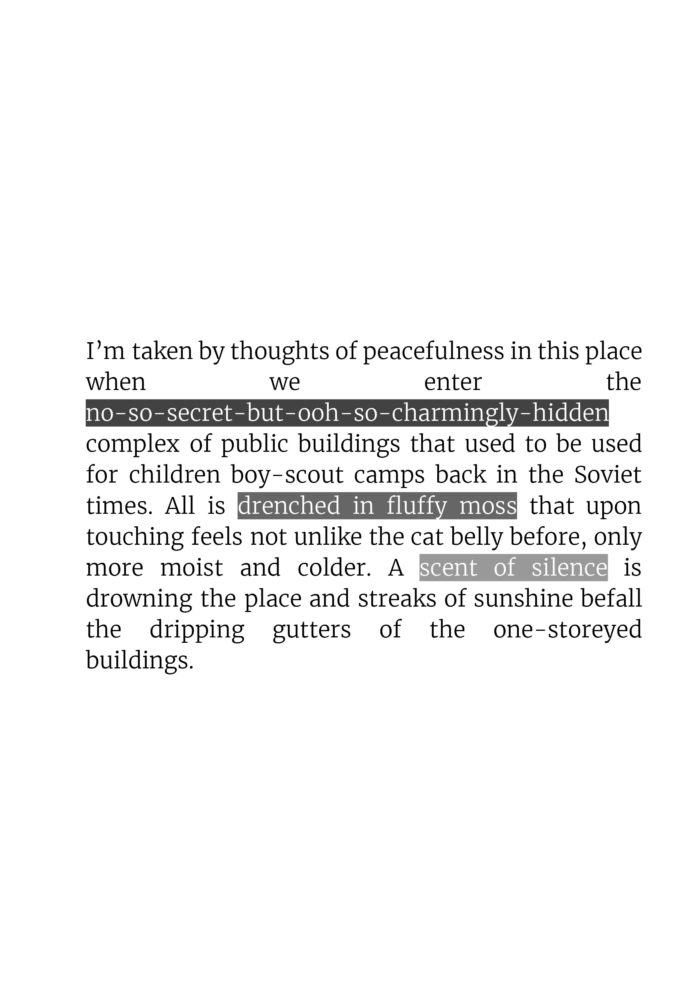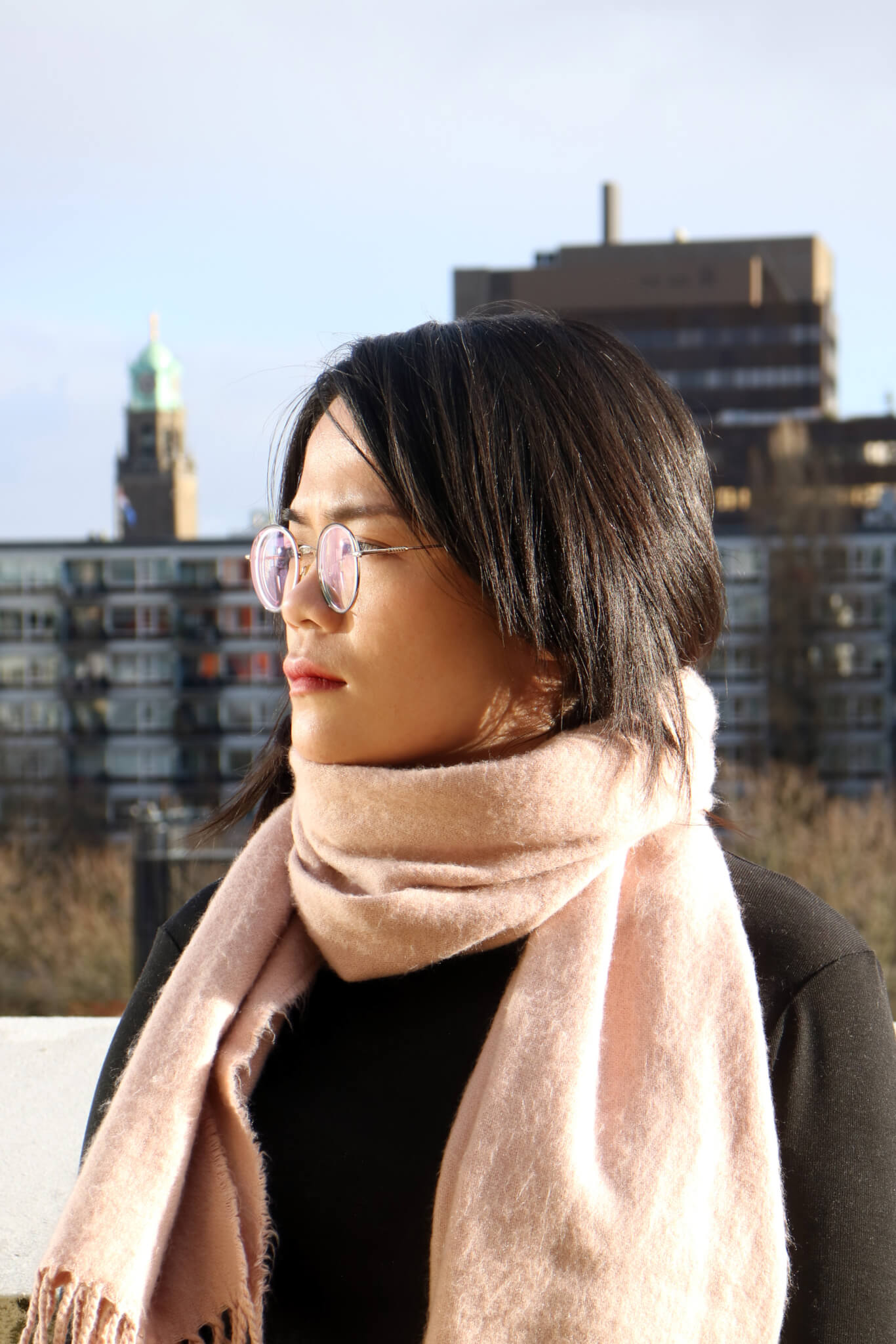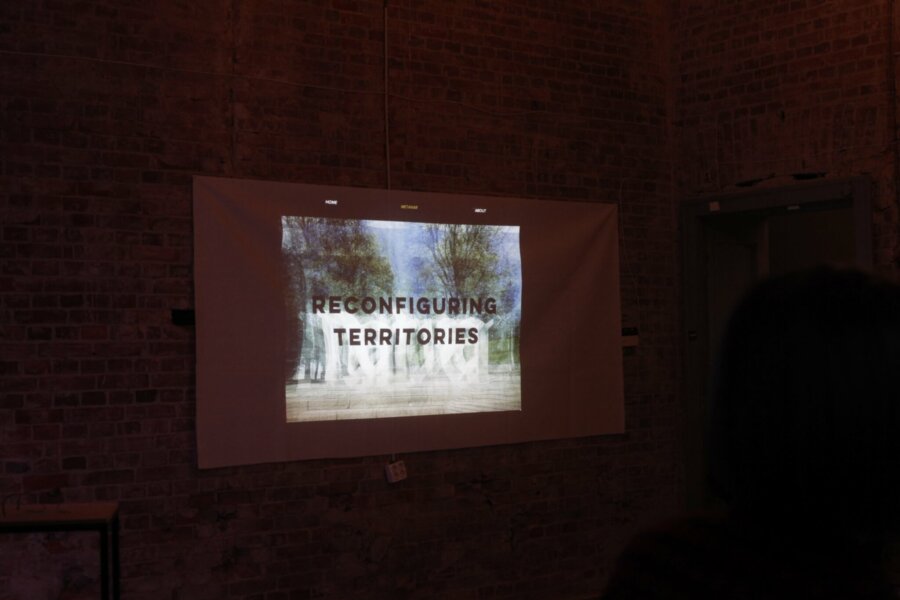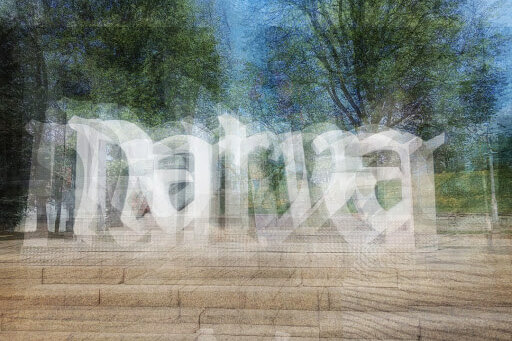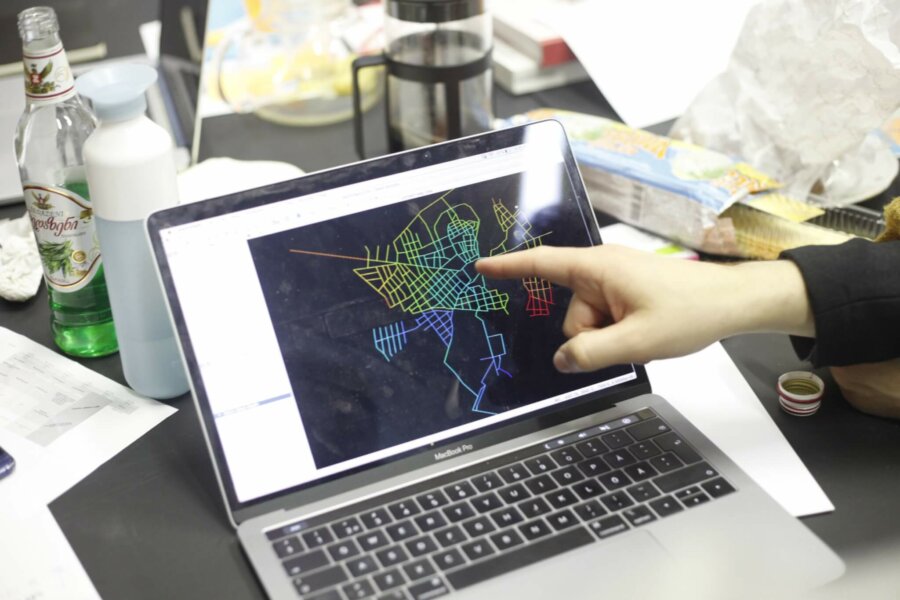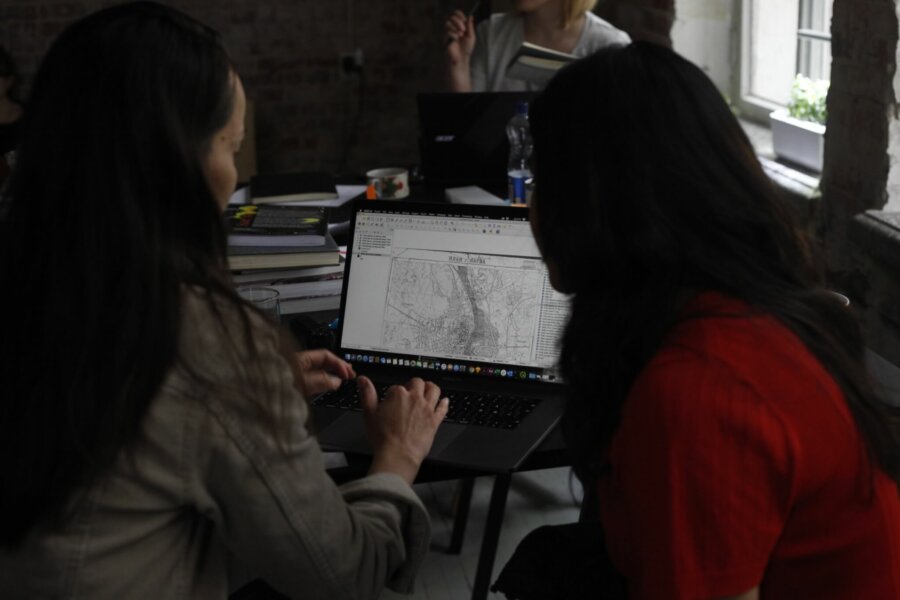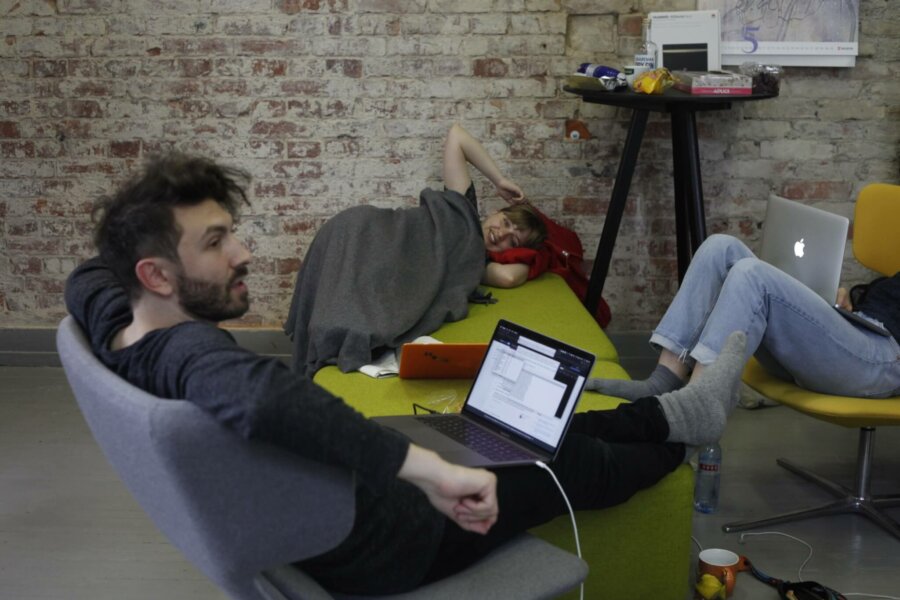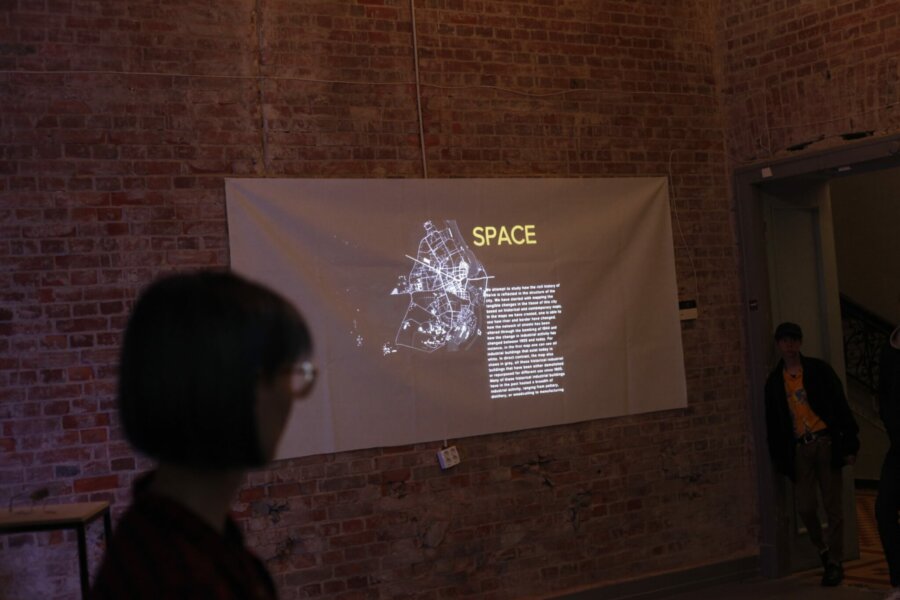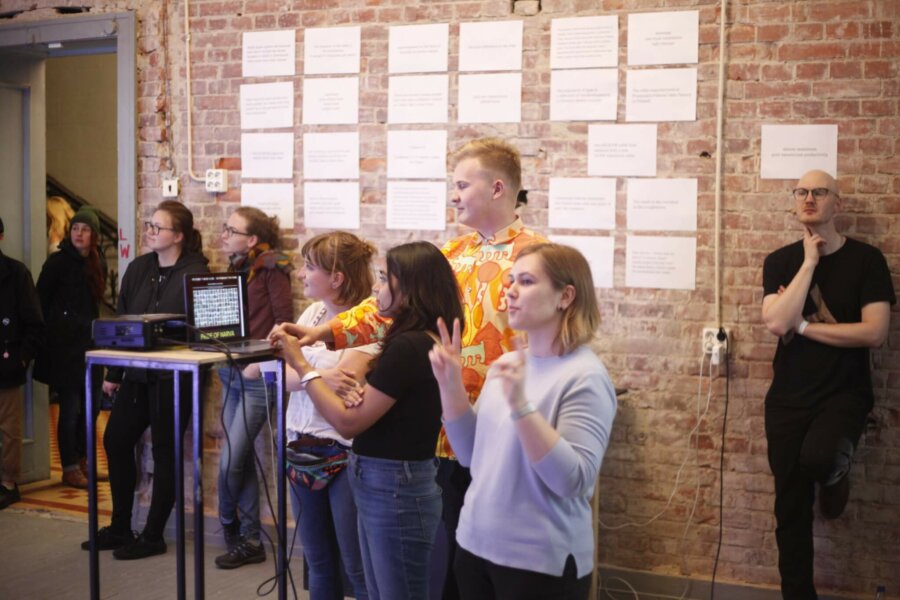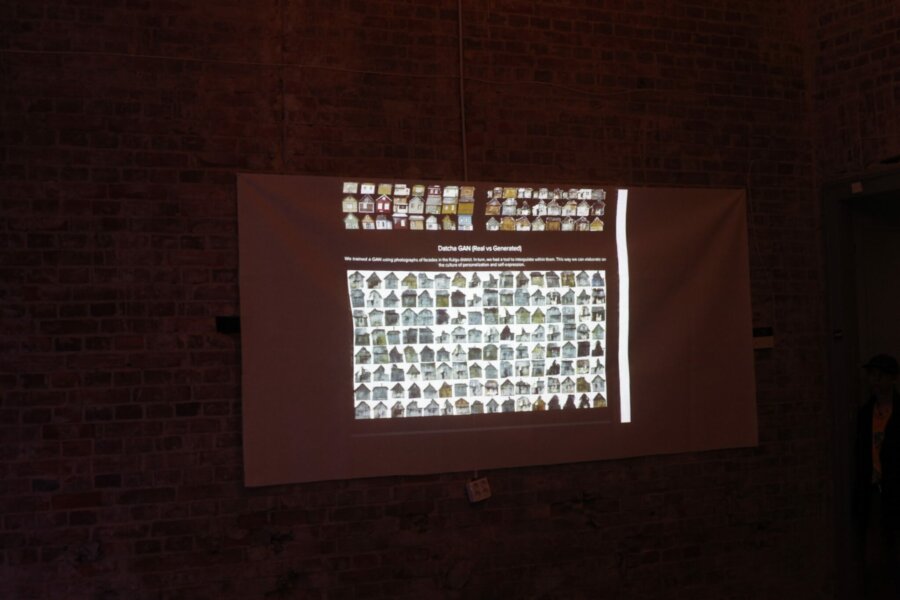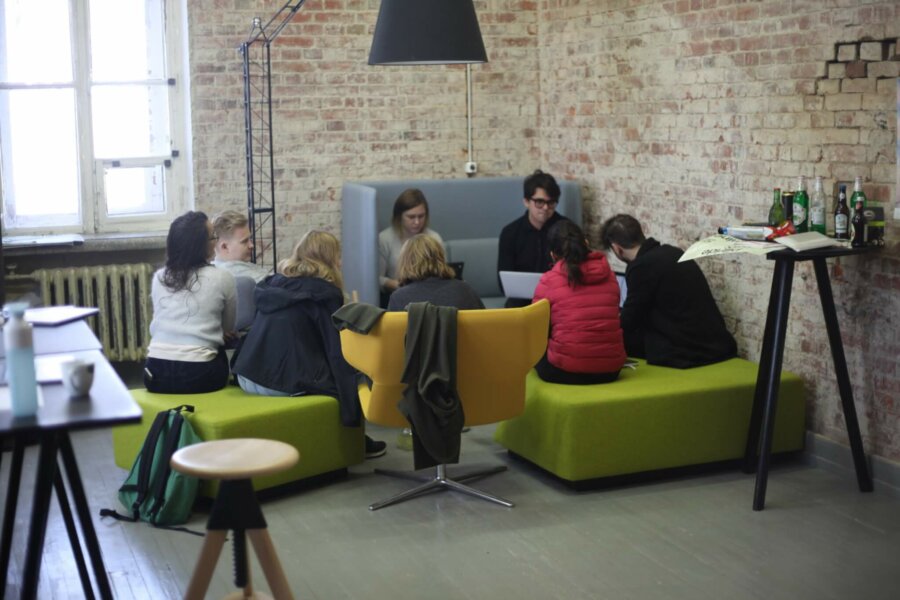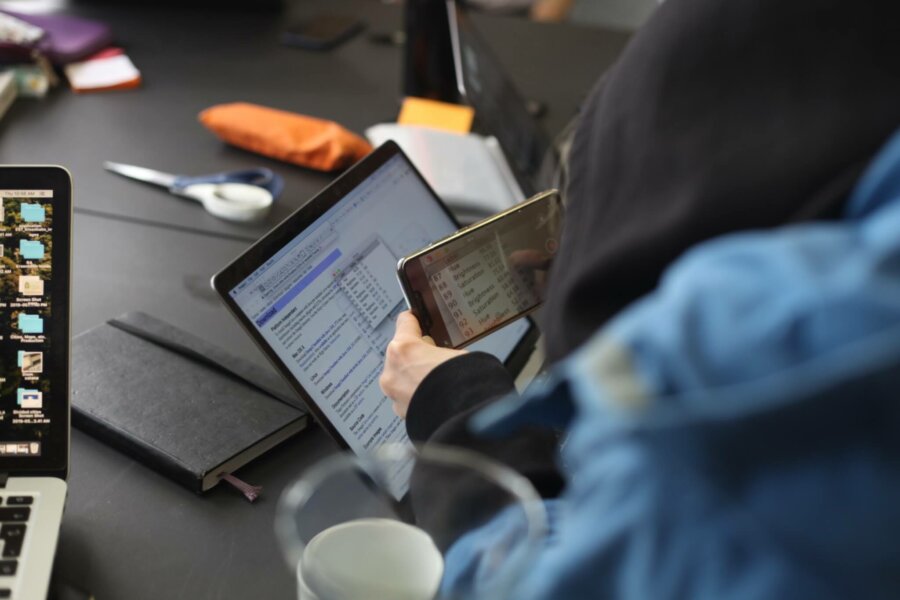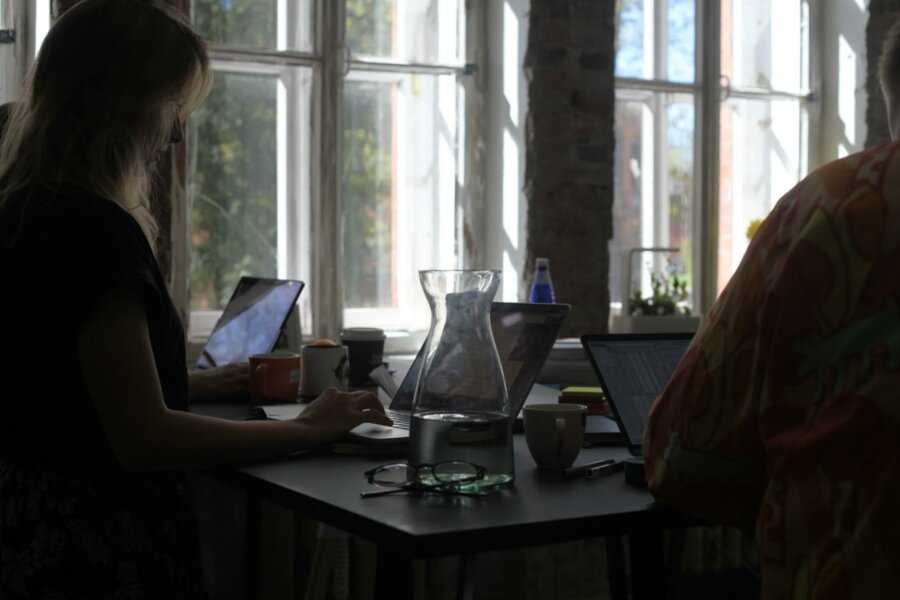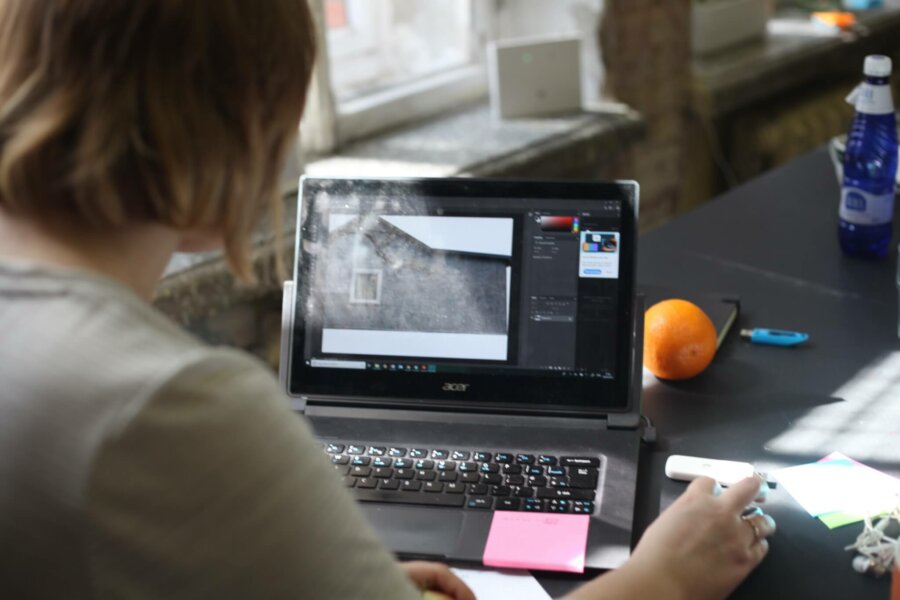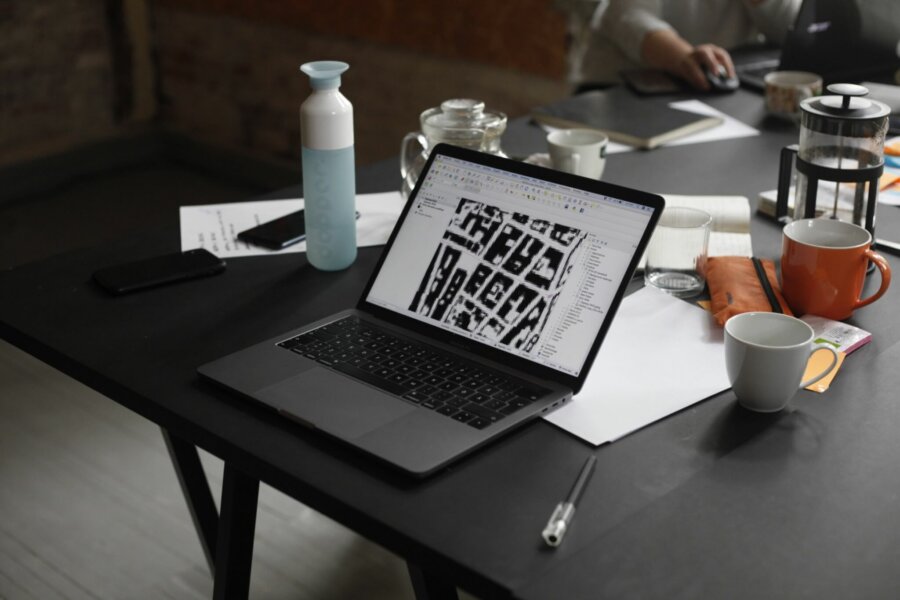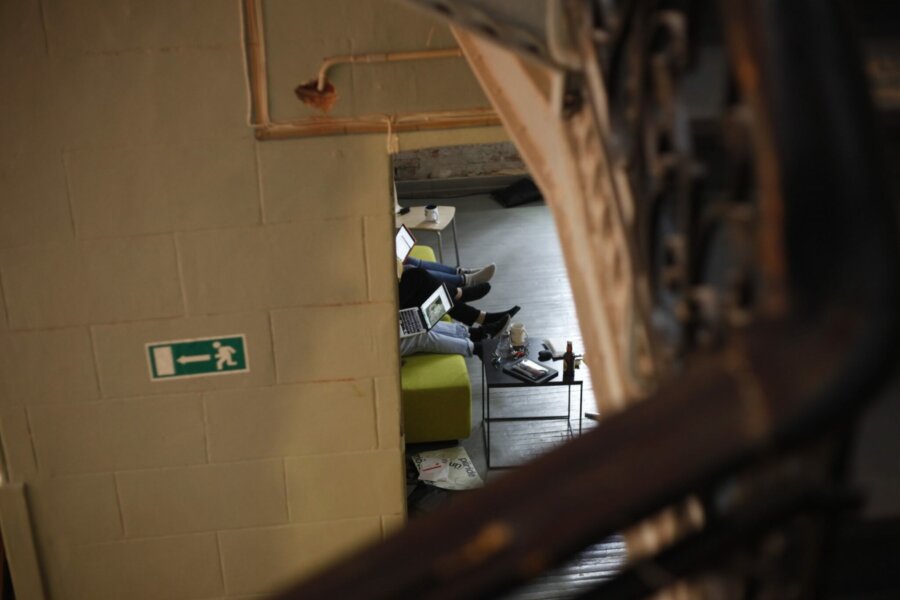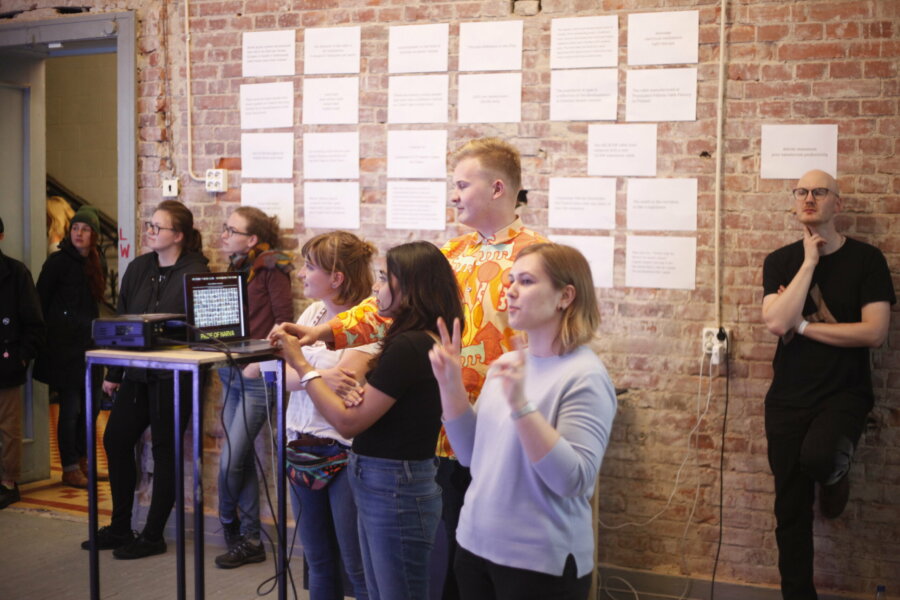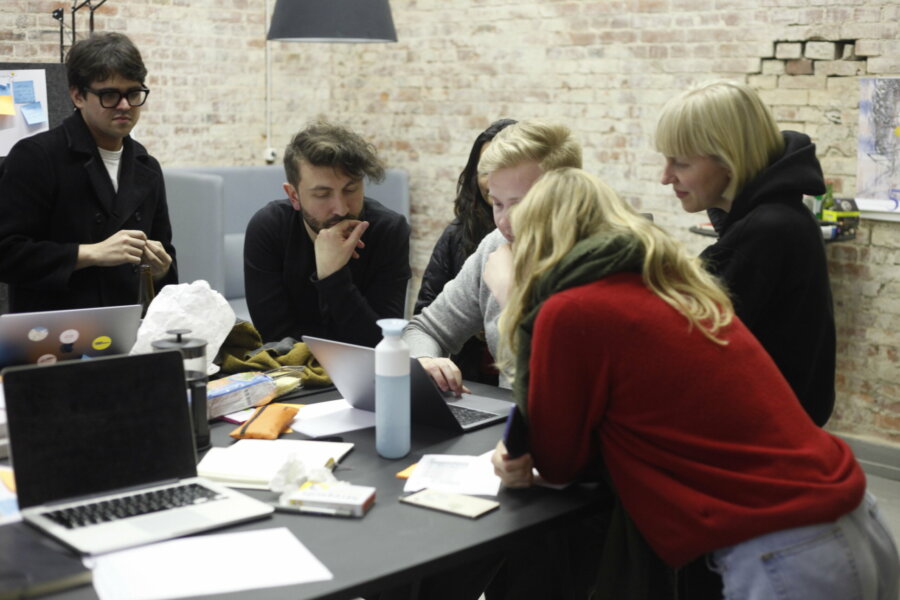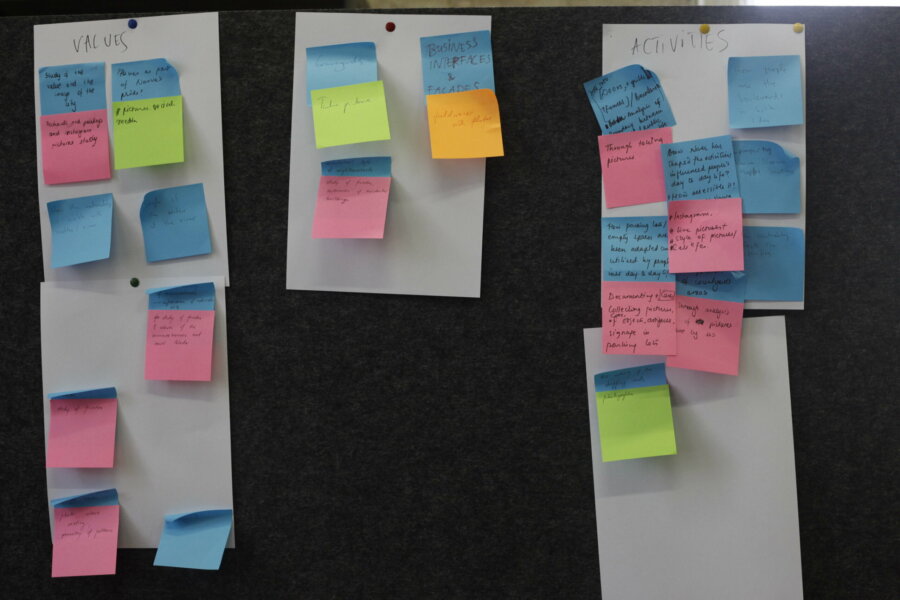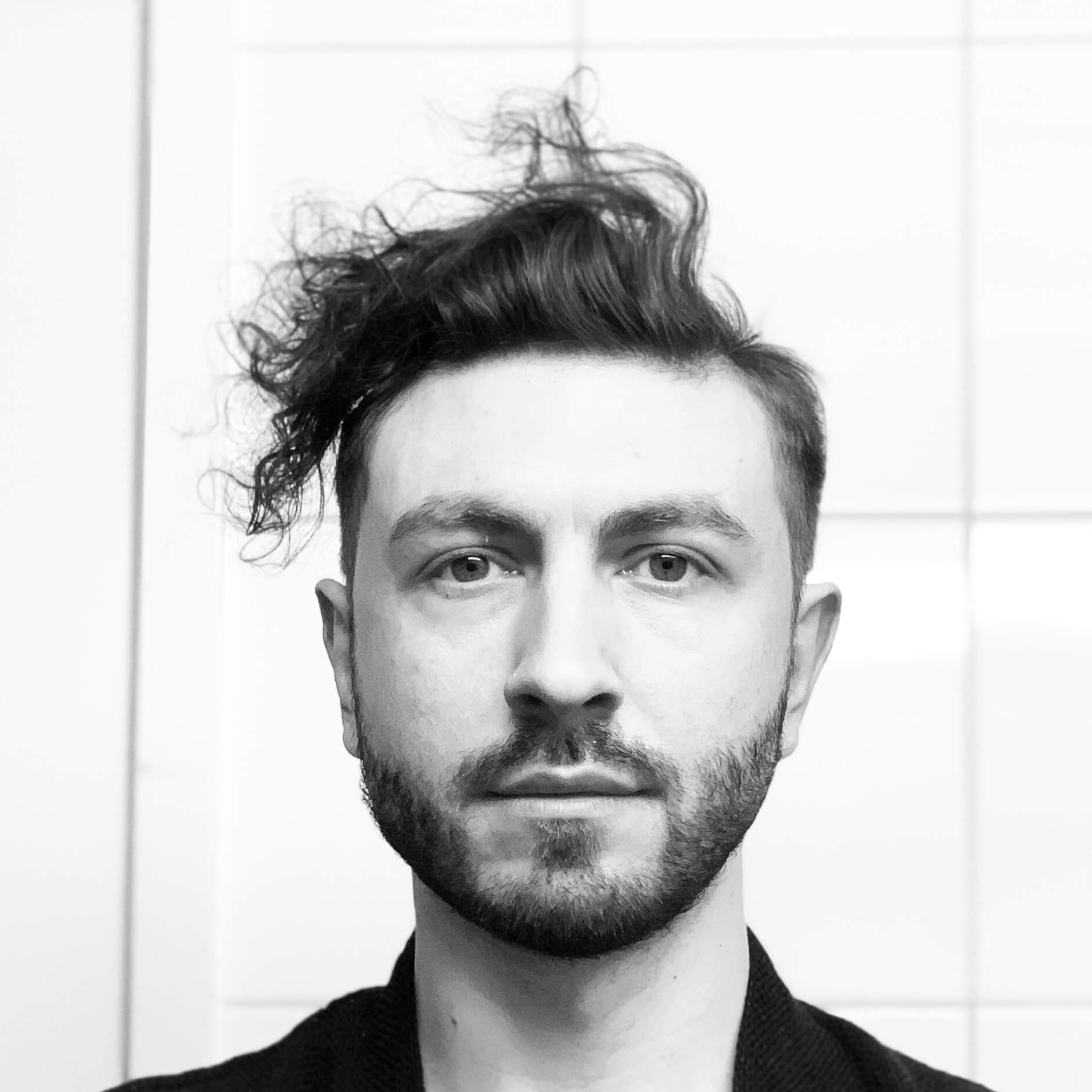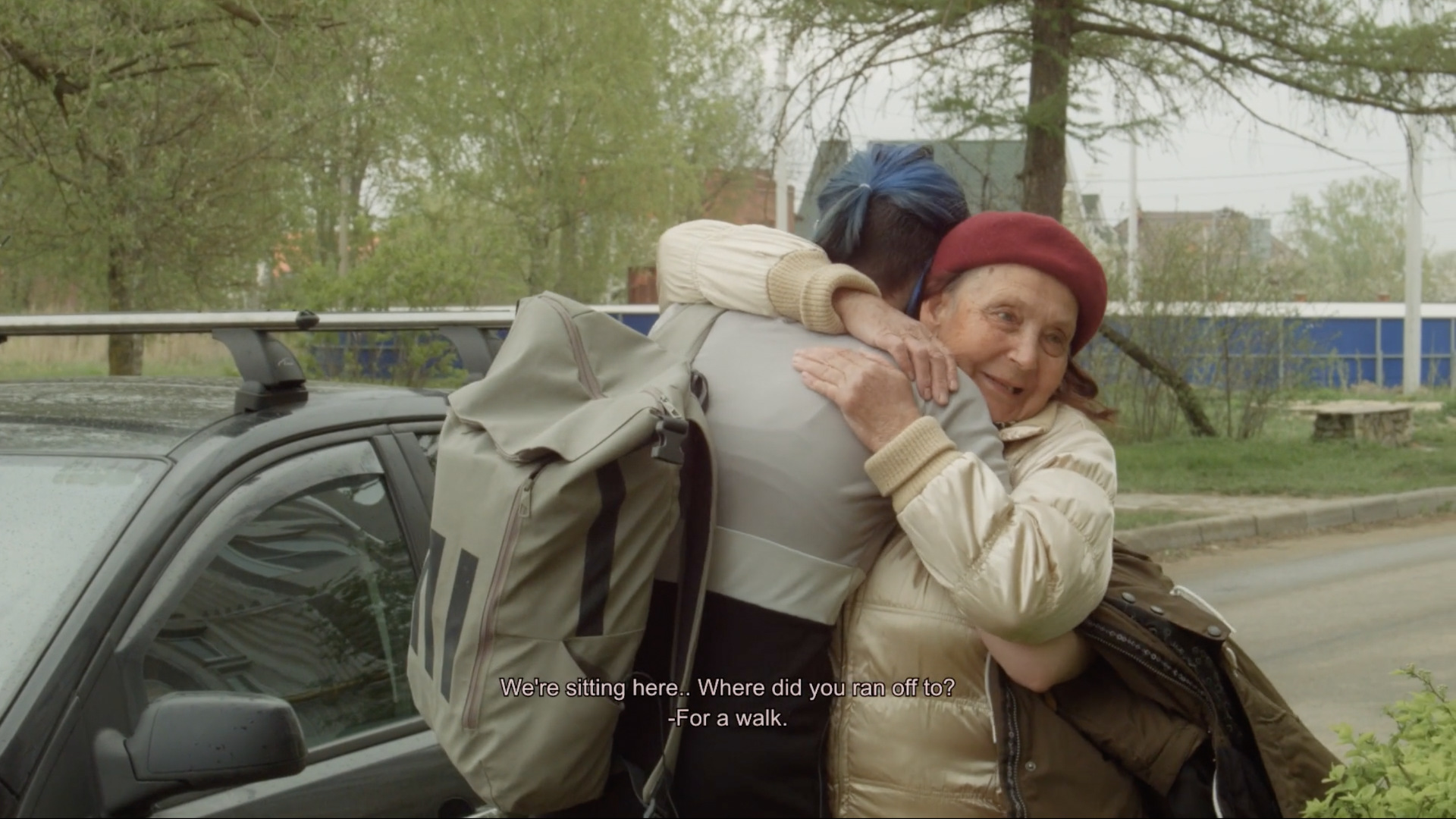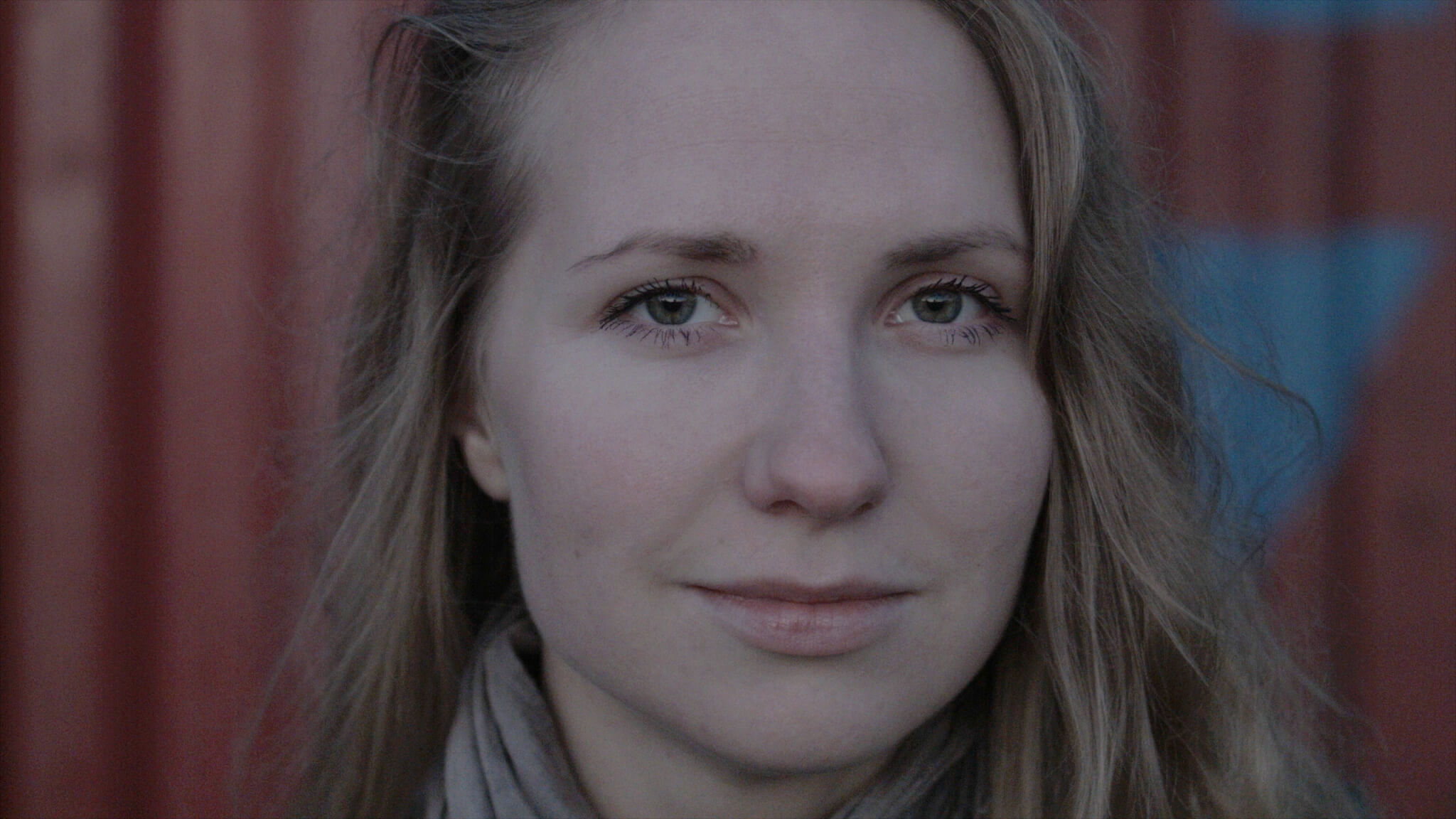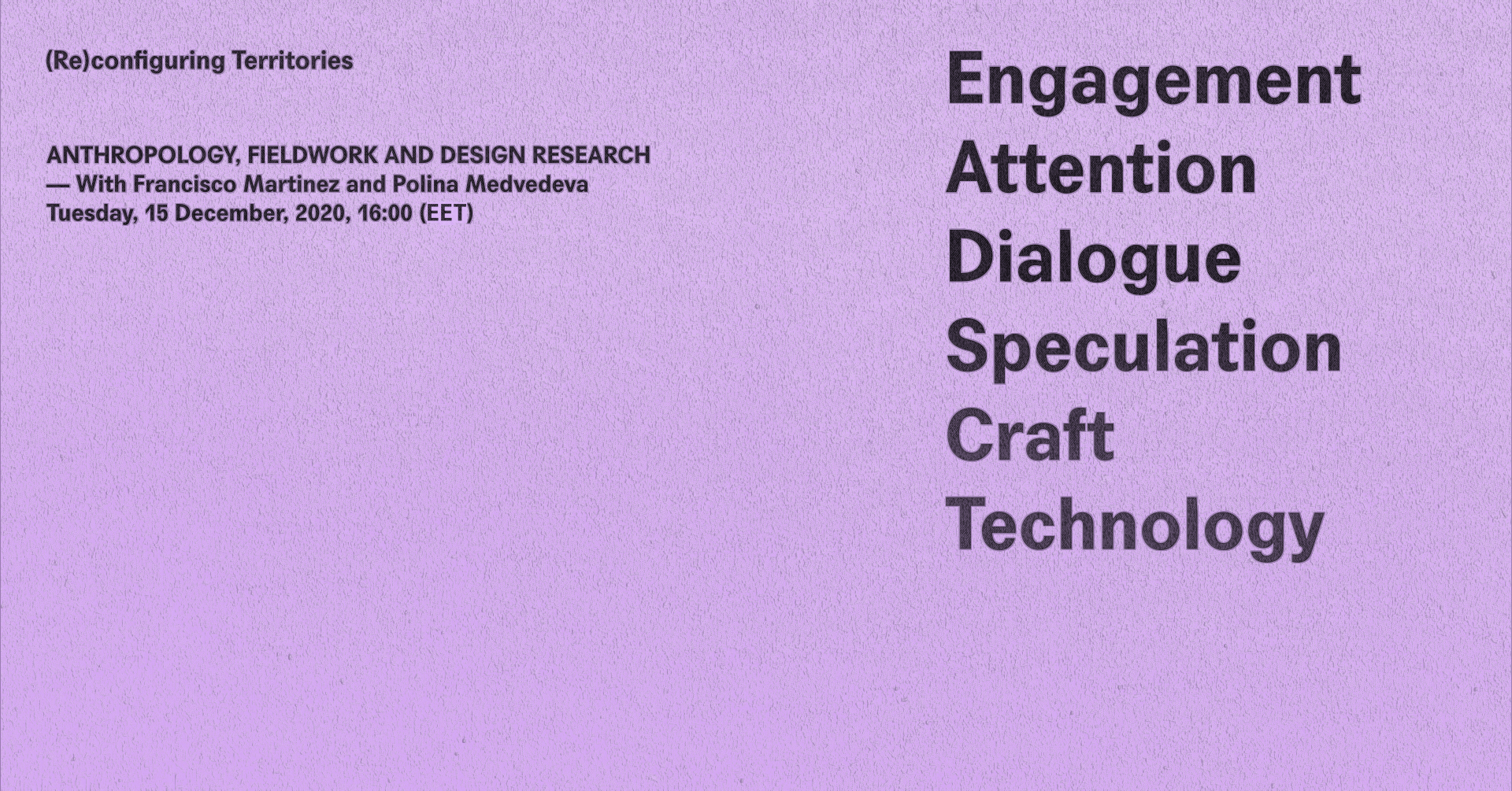(Re)configuring Territories Spring School 2019
With Yin Aiwen, Damiano Cerrone, Polina Medvedeva and 15 participants
May 6–12, 2019
The first instalment of the (Re)configuring Territories programme was a week-long Spring School that took place at Narva Art Residency in May 2019. The Spring School was structured around three overlapping workshops, each of which approached Narva as an archive but from a different angle and on a different temporal scale.
What kinds of conflicts and tensions can we find in the material, informational and social sediments of the city? Whose stories are being told, written down and archived? Who are the main protagonists? Whose voices are not being heard?
In the first day of the Spring School we had an introduction to the research programme and a walking tour in Narva. In the evening we s screened the movie: “Gerassimovi naised, Women of Gerassimovi” by Birgit Rosenberg.
The next four days were reserved for the Spring School workshops.
In the Theory, History, Poetry Workshop led by Yin Aiwen, five participants walked through history in poetry, ate theory on history, and wrote poetry on theory by wandering, listening, reading, ruminating, conversing and writing together in the city.
In the metaNAR – Narration for Digital Society Workshop led by Damiano Cerrone, five participants used digital means to explore the metamorphology of Narva, process the digital footprint and map the collective landscape of the city.
In the Deconstructed Field Study Workshop led by Polina Medvedeva, five participants interacted with the city and its inhabitants, documenting small stories and local knowledge about Narva’s informal economies and non-conformist communal structures.
On Tursday we also had a field trip to the Kreenholm factory area by from the Narva Art Museum.
On Saturday each of the three workshops presented their findigs as part of the Narva Urban Lab 2019 event that took place in and around the Narva Art Residency.
On Sunday morning we had a moment to reflect the whole Spring School week. We documented and took down the exhibition from the day before and said good byes to each other and to the City of Narva.
Field trip to the Kreenholm factory
Field trip to the Kreenholm factory
Spring School Workshops
→ Весенняя Школа
→ Kevadkool
→ Kevätkoulun työpajat
Theory, History, Poetry
Spring School 2019
→ Весенняя Школа 2019
→ Kevadkool 2019
→ Kevätkoulu 2019
In the Theory, History, Poetry Workshop led by Aiwen Yin, spring school participants walked through history in poetry, ate theory on history, and wrote poetry on theory by wandering, listening, reading, ruminating, conversing and writing together in the city.
In the Narva Urban Lab the group presented an exhibition where the participants shared their textual work as installations and performances.
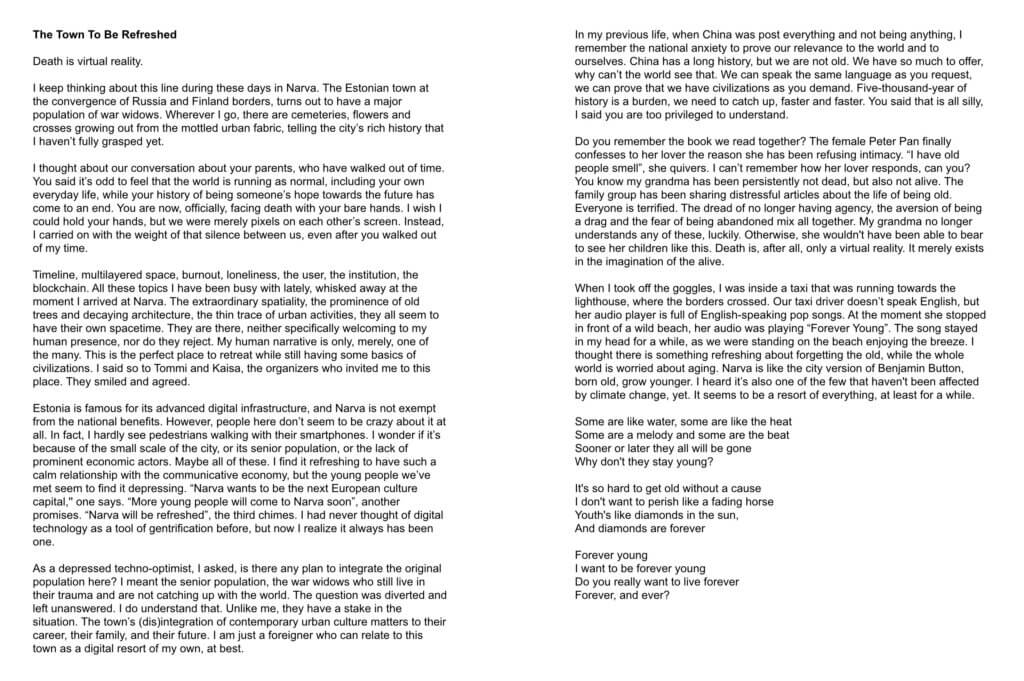
Spring School Mentors
→ Весенняя Школа
→ Kevadkool
→ Kevätkoulun mentorit
MetaNAR
Spring School 2019
→ Весенняя Школа 2019
→ Kevadkool 2019
→ Kevätkoulu 2019
MetaNAR
In the metaNAR – Narration for Digital Society Workshop led by Damiano Cerrone, five participants used digital means to explore the metamorphology of Narva, process the digital footprint and map the collective landscape of the city.
MetaMorphological research explores the speculative form of the city by examining the shape of the urban environment and its cultural landscape, emphasizing the significance of technology and the rules of media platforms for the creation of urban loci. metaNAR was an attempt to apply this framework to the border city of Narva, where we introduced a new, synthetic landscape.
We leveraged GANs and style extraction (neural style transfer without the content loss, in collaboration with Rheza Budiono) to encourage discussion and broaden speculation about the condition and future of a city, about the way in which its complexities might unravel. Through experimenting with these technologies in Narva’s post-industrial landscape, we eventually arrived at a place of hope: that computer vision, large-scale image analysis, and cartography, when coalesced, can be tools for abstracting the shapes and functions of a city, unleashing the collective imagination of groups, giving them the capacity to redefine their own environment.
We are proposing to write an article about the use of new digital media as tools for reconfiguring the imagination of contemporary cities.
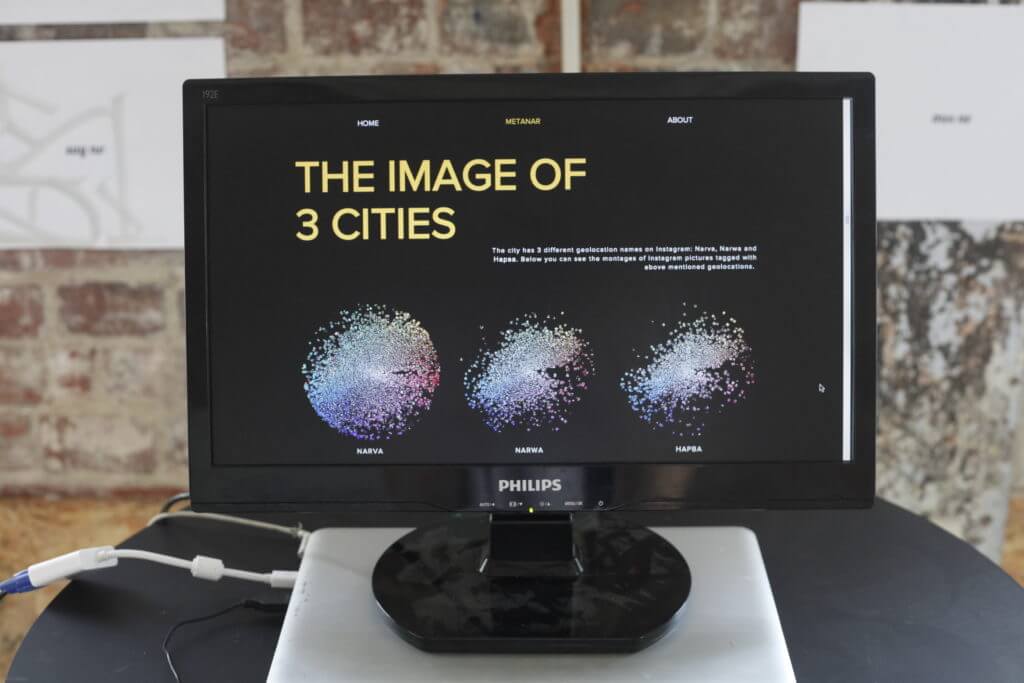
Deconstructed Field Study
Spring School 2019
→ Весенняя Школа 2019
→ Kevadkool 2019
→ Kevätkoulu 2019
In the Deconstructed Field Studies -workshop lead by Polina Medvedeva, participants interacted with the city and its inhabitants documenting small stories and local knowledge about the informal economies and non-conformist communal structures of Narva.
In 2012 Narva’s old town gets a brand new building, standing next to the Town Hall. Freshly inaugurated Narva College, say Kavakava Architects, reflects the former Stock Exchange Building destroyed during the Second World War. Yet for some Narva older residents, the modern architecture comes as a challenge to their representations.
When entering the building shaped with clear wood structures, a sense of utopia invades the thoughts. A new generation is busy going in and out through the glass doors, discussing at the fancy café or leaning over Estonian and Russian books in the cosy library. Somehow, accounts of the former Kreenholm factory’s social life come to mind. Perhaps, the youth has found its new headquarters.
Among these ambitious youngsters, some have crossed the border from neighbouring Russia. The hybrid situation of Narva appears as an unforeseen opportunity for those who aspire to open the door to Europe.
And yet… just like the golden age of Kreenholm don’t include hard work, stress and health problems in the picture… is the European university utopia resisting the reality of Narva’s complexity? How is this new generation of Russian-speakers arriving in Narva going to face Estonia’s conflicted past? How are Estonians going to process the changing structure and ambitions of the Russian-speaking population? How is the identity of Narva going to be transformed?
As the medieval castle stands still on the bank of the undisturbed Narva river, it feels hard to find the clue, and so we wonder… What will be the face of the future Narva?
Spring School Mentors
→ Весенняя Школа
→ Kevadkool
→ Kevätkoulun mentorit
Deconstructed Field Study
[display-posts id=”527″]
metaNAR – Narration for Digital Society
Theory, History, Poetry
Mirimari xxx’s installation, made during the Theory, History, Poetry Workshop
Valentina Vella’s text Narwhal, made during the Theory, History, Poetry Workshop
Borya XXX’s installation , made during the
Spring School Mentors
→ Весенняя Школа
→ Kevadkool
→ Kevätkoulun mentorit
(Re)configuring Territories Talks
→ Доклады на (Пере)осмыслении территорий
→ (Re)configuring Territories vestlusring
→ (Re)configuring Territories -keskustelut
